Embodying change: Transforming power, culture and well-being in aid organisations
A podcast for humanitarians who want to work in closer alignment to core values like compassion, accountability, solidarity and equity. Born in 2020 in collaboration with CHS Alliance and Mary Ann Clements, the podcast is now entering its next evolution and is hosted by Melissa Pitotti.
"The Big Humanitarian Rethink" with Lydia Poole
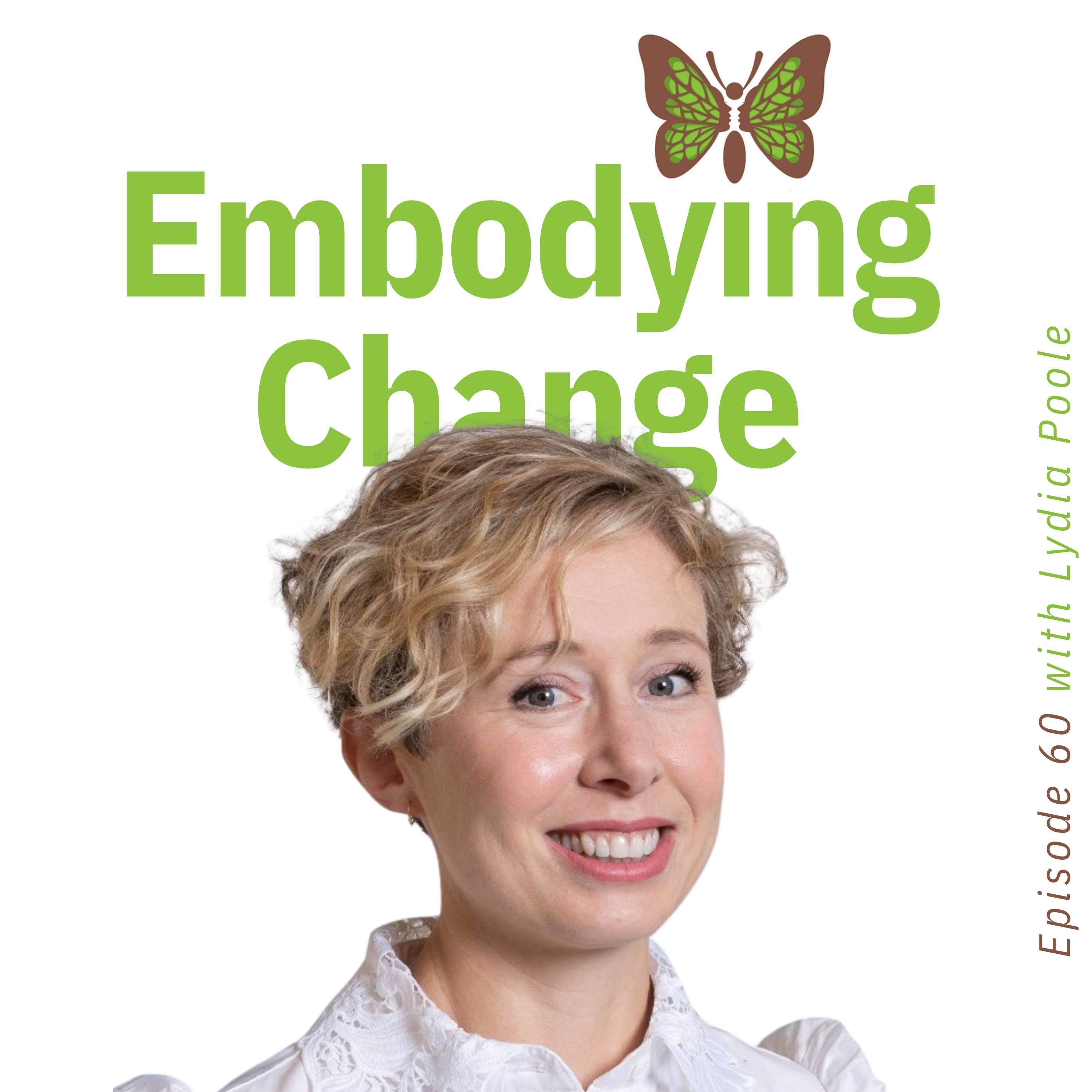
Lydia Poole discusses "The Big Humanitarian Rethink," a digital consultation she launched with Ben Parker to capture diverse perspectives on reforming the humanitarian system during a period of unprecedented funding cuts. The consultation revealed two distinct camps: "reimaginers" who advocate for radical transformation addressing power imbalances, and "improvers" who prefer incremental change while preserving humanitarian principles. Despite these differences, both groups agree on the need to maintain some international crisis response capabilities. As the humanitarian sector navigates this watershed moment, Lydia emphasizes the urgent need to make difficult choices about what to preserve while avoiding a disorderly collapse of...
59. Humanitarians' anchor in the storm: The power of structured peer support with Carrie Santos
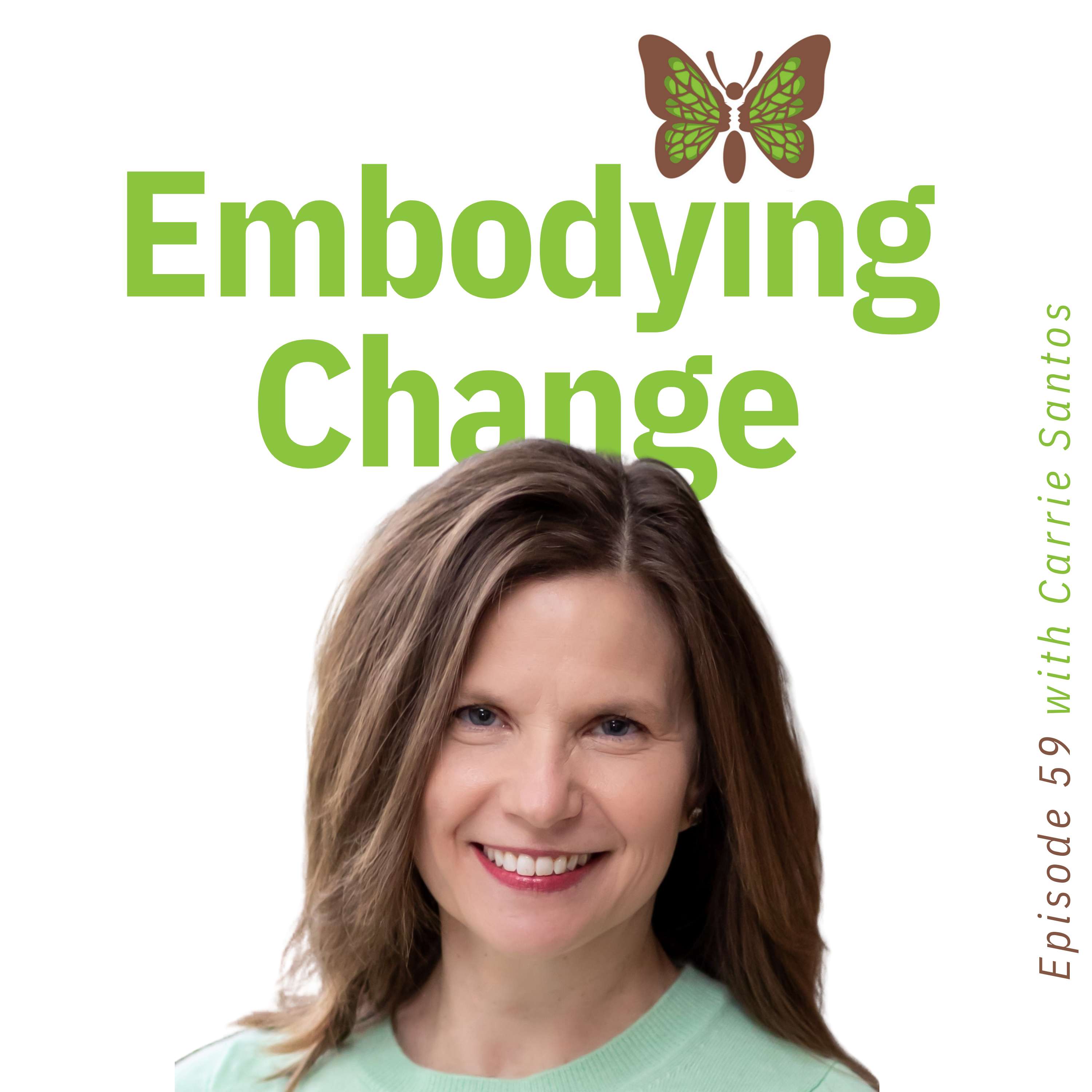
In a sector increasingly battered by funding cuts, program disruptions, and global uncertainty, where can humanitarian professionals find stability? As the waves of change crash around us, what can serve as our anchor?
In this powerful episode, Melissa Pitotti talks with Carrie Santos about how structured peer support groups (also called masterminds or forums) can provide that crucial foundation during turbulent times. They explore how these intentional communities help humanitarians weather career transitions, prevent burnout, and find creative solutions to complex problems when traditional support systems falter.
Carrie shares...
58. “Navigating the storm” with Dr. Lucia Berdondini
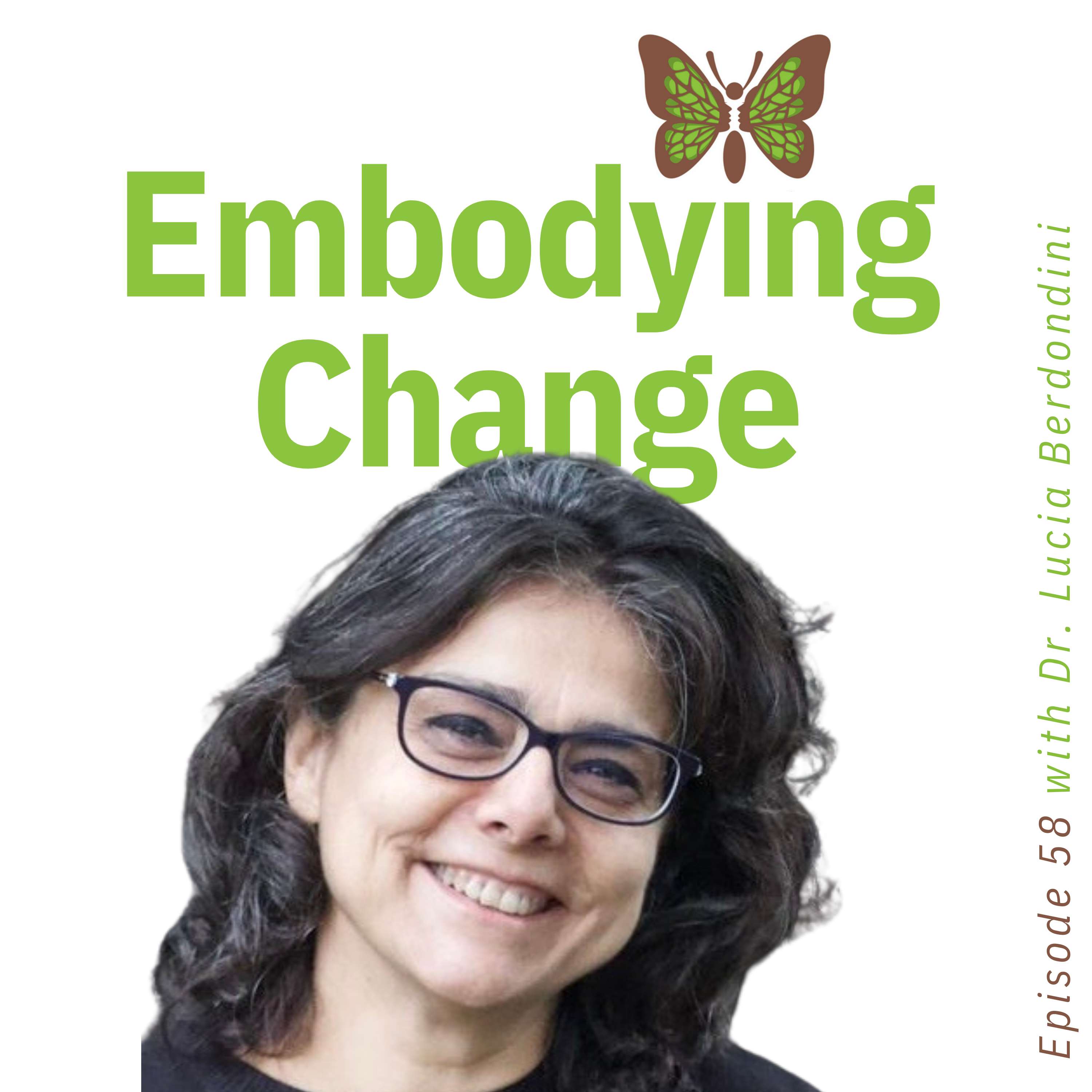
In today’s episode, we hear from Dr. Lucia Berdondini, a Gestalt therapist and humanitarian, who shares her journey and the importance of embodying change in times of crisis. She discusses how grief and uncertainty are affecting the humanitarian workforce amidst recent challenges, and how we can support ourselves and others through this transformative period.
Key points:
57. "Find your people" with Farah Mahesri
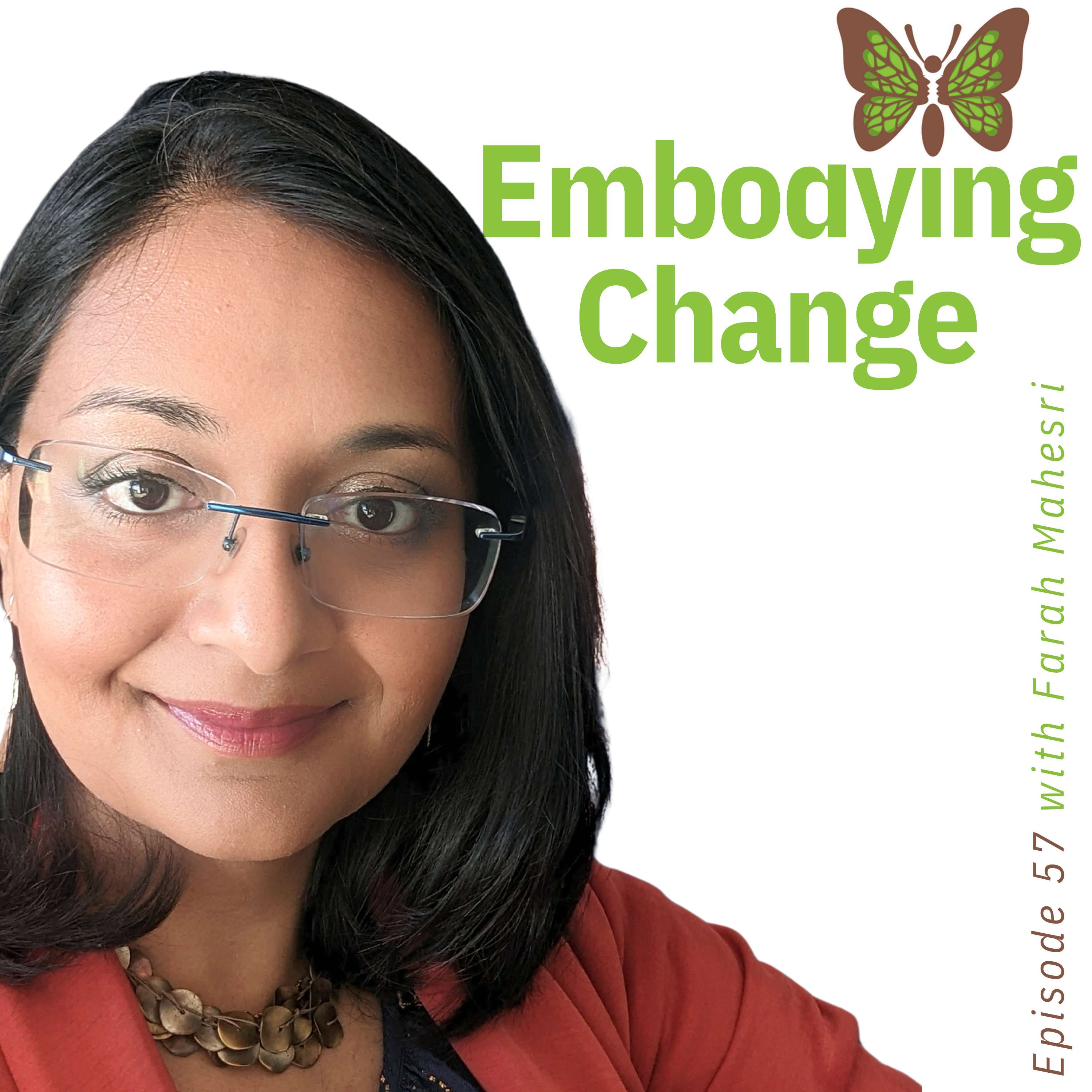
Farah Mahesri shares insights about systems-level change, the importance of building trust, and finding your community during times of transition. Drawing from her experience working with social justice organizations and in global development, Farah discusses how to embody change at multiple levels while staying true to your values.
You’ll hear about:
The five levels of systems analysis and the importance of working at all the levels, all at the same timeThe importance of finding your community - no one can do hard work by themselvesBuilding trust and taking the first step in tr...56. "Everyone can contribute to positive culture" with Anna Young
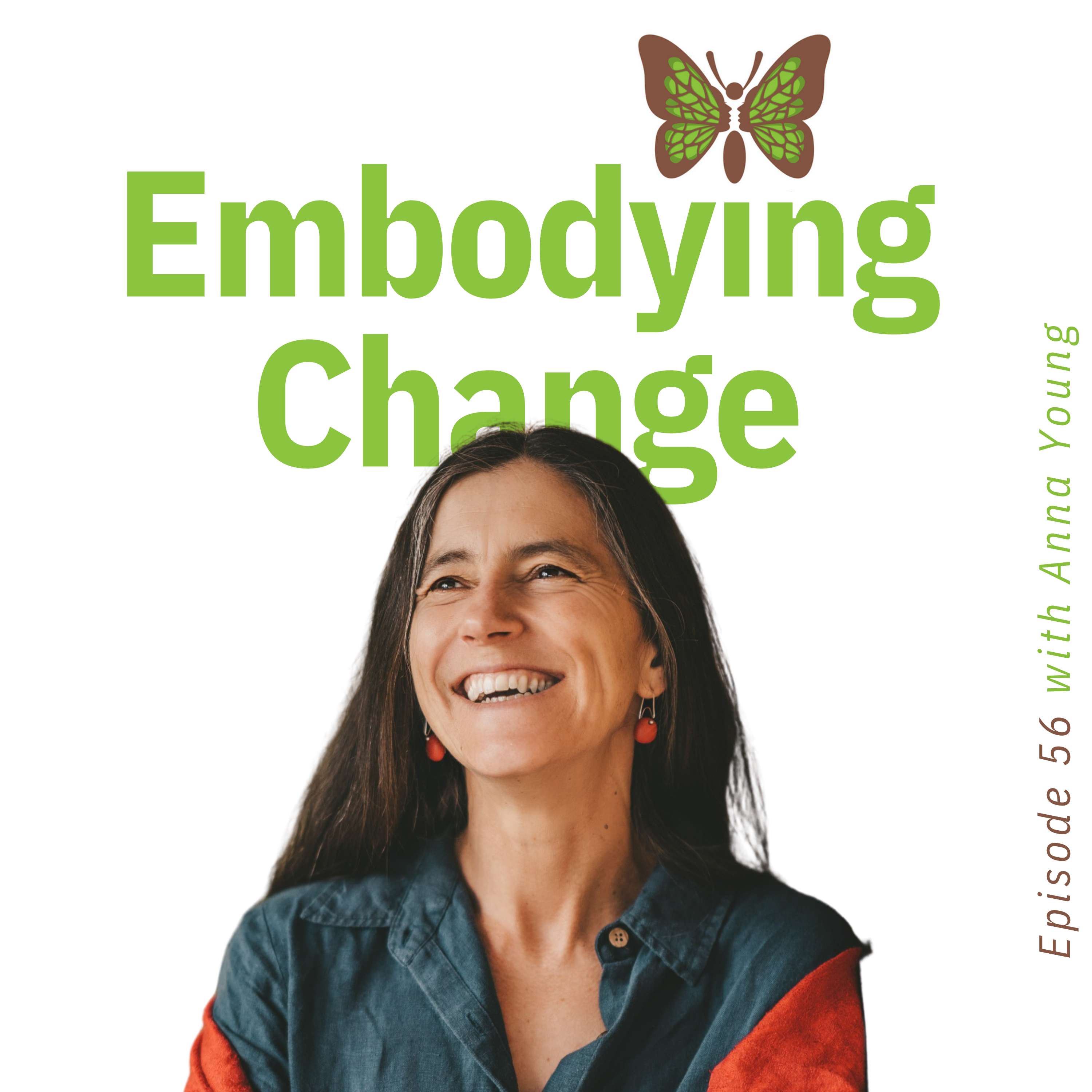
In this episode of Embodying Change, Melissa Pitotti talks with Anna Young, an organizational culture specialist, to explore how humanitarian teams can align their values with their daily work. Drawing from her research and extensive experience in the humanitarian sector, Anna shares actionable strategies for creating cultures rooted in kindness, connection, and appreciation—while addressing the systemic challenges that cause burnout and misalignment. This conversation is packed with practical insights, inspiring reflections, and a clear call to action: Start small, but start today.
About Anna Young:
Anna Young is an organizational culture expert bas...
55. The NGO Staff Wellbeing Network
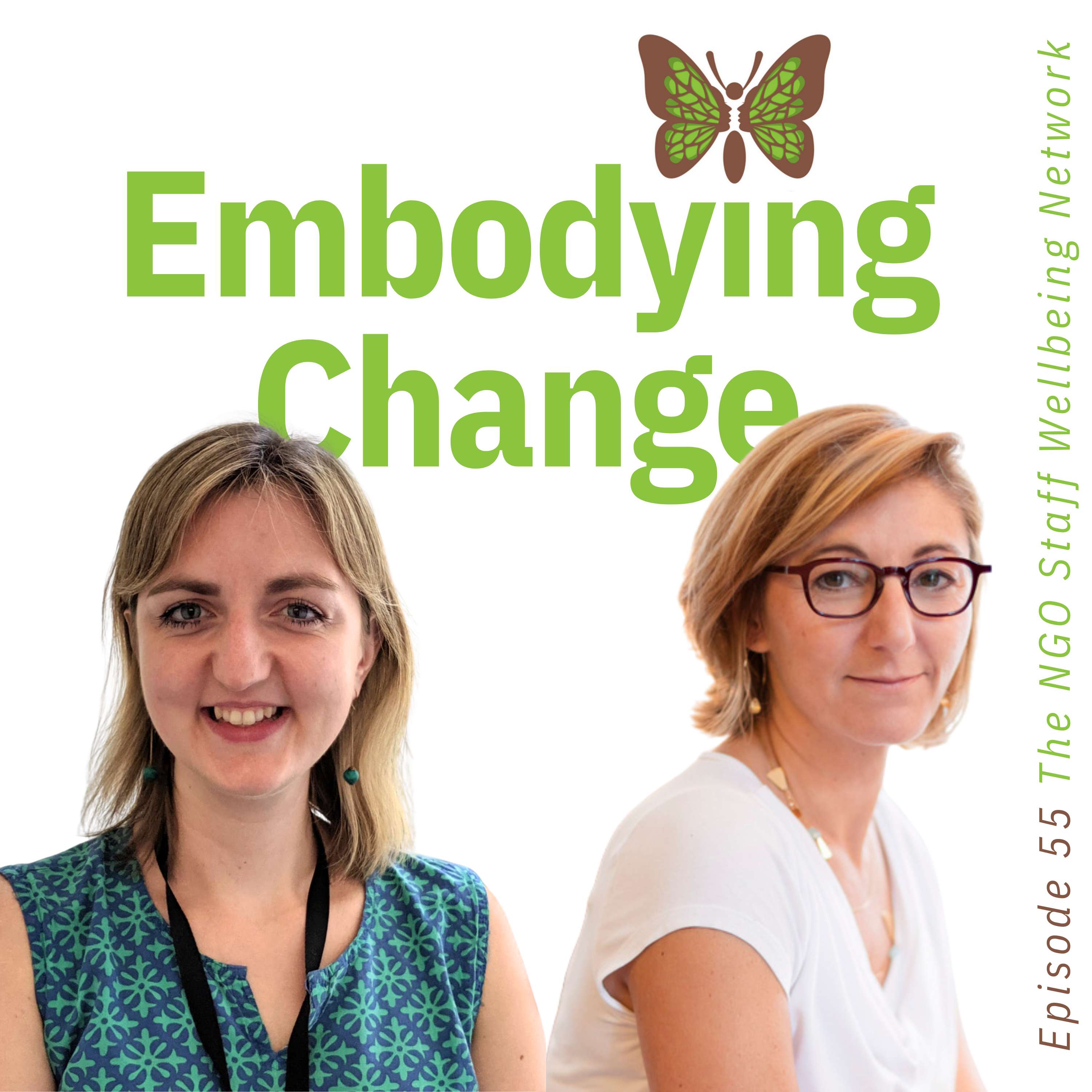
In this episode of Embodying Change, host Melissa Pitotti is joined by Jody Gunn-Russell and Camille Lemouchoux, two trailblazers in humanitarian staff well-being. Together, they recount the inspiring story of the NGO Staff Wellbeing Network, from its inception to its evolution into a vibrant community of practice. The conversation dives into the challenges of fostering well-being in the humanitarian sector, the systemic changes needed, and the collective efforts required to support staff across diverse cultural and organizational contexts.
Guest bios:
54. “Moral injury” with Dimple Dhabalia
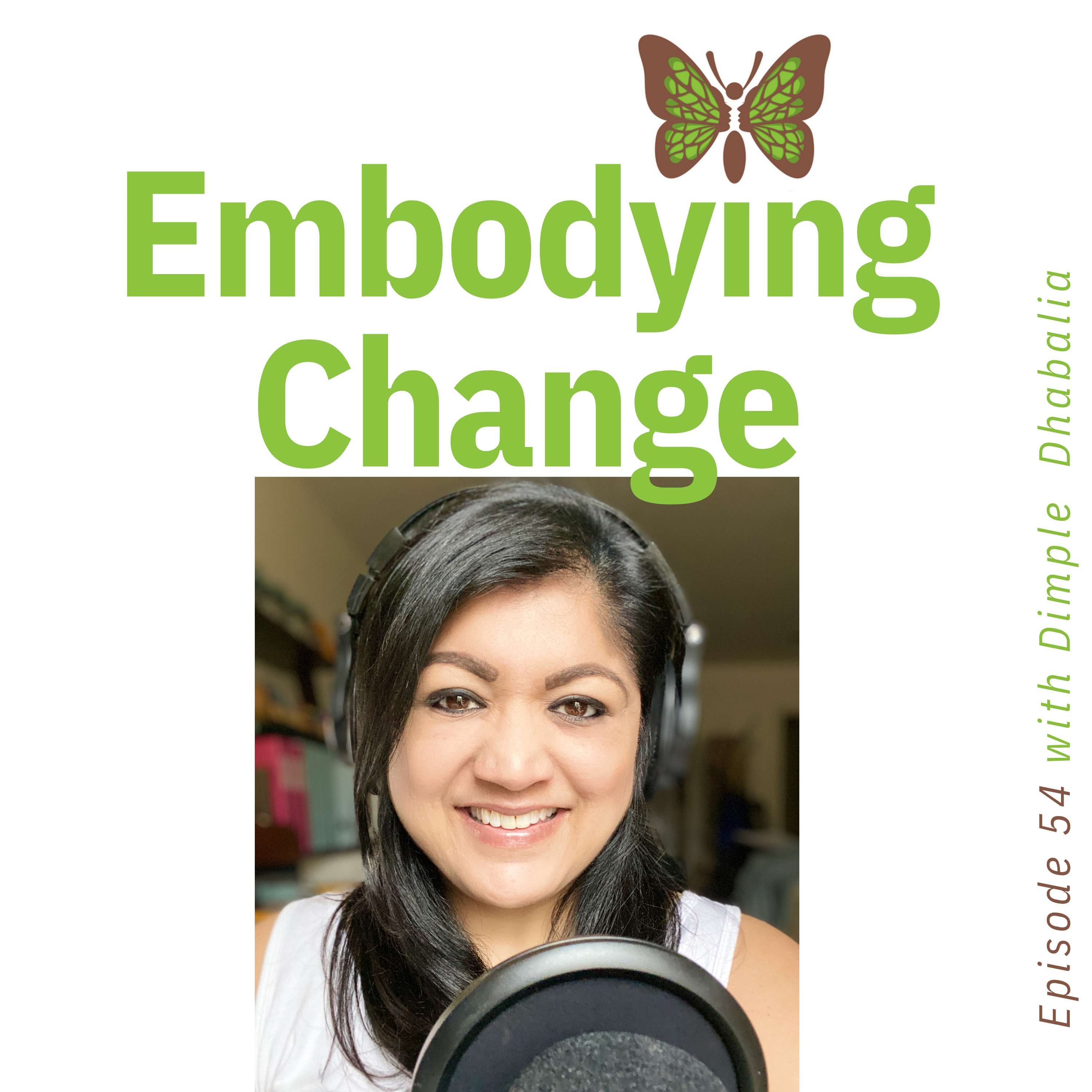
In this heartfelt conversation, Dimple Dhabalia shares her journey from working in the government and humanitarian sectors to advocating for trauma-informed leadership and workforce well-being. Through the lens of her personal experiences and her book Tell Me My Story, Dimple explores the vital shift from “service before self” to a more sustainable, human-centered approach. This episode dives into the complexity of moral injury, the ripple effect of self-care in leadership, and how we can reframe our approach to service to prioritize both humanity and well-being.
Guest Background:
Dimple Dhabalia is a seasoned humanitarian prof...
53. Overcoming imposter syndrome with Torrey Peace
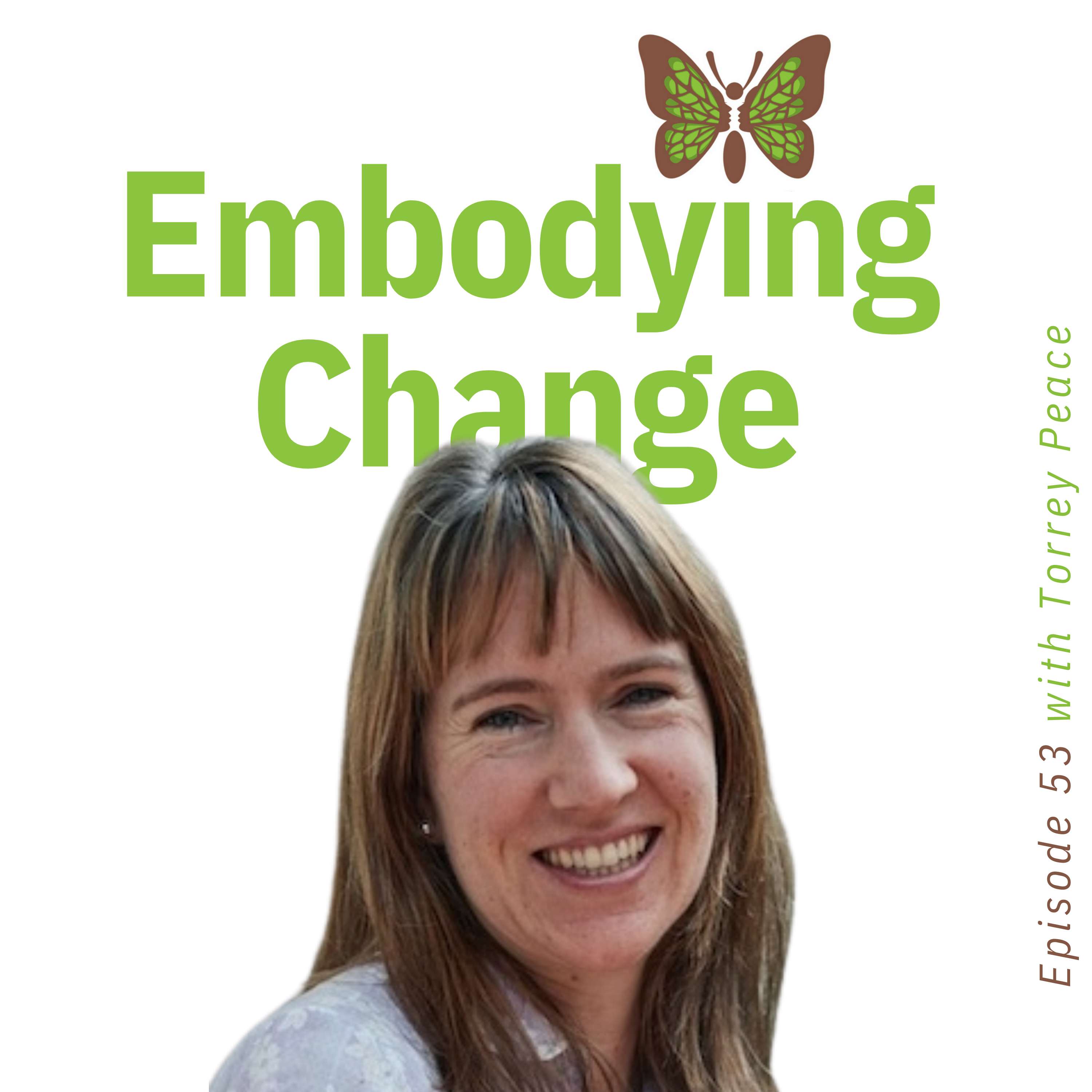
In this episode of Embodying Change, Melissa Pitotti welcomes back Torrey Peace, leadership coach and expert in the humanitarian and development sectors. Together, they explore the challenge of balancing high performance with self-care, and the importance of setting boundaries and empowering your team to thrive. Torrey shares insightful strategies on overcoming imposter syndrome, delegating effectively, and why investing in your team creates a ripple effect of positive impact. Tune in to hear practical advice you can start applying today, whether you’re leading a small team or an entire organization.
About Torrey
As a certified coach wi...
52. The System Changer Sleepover with Debra Peltz
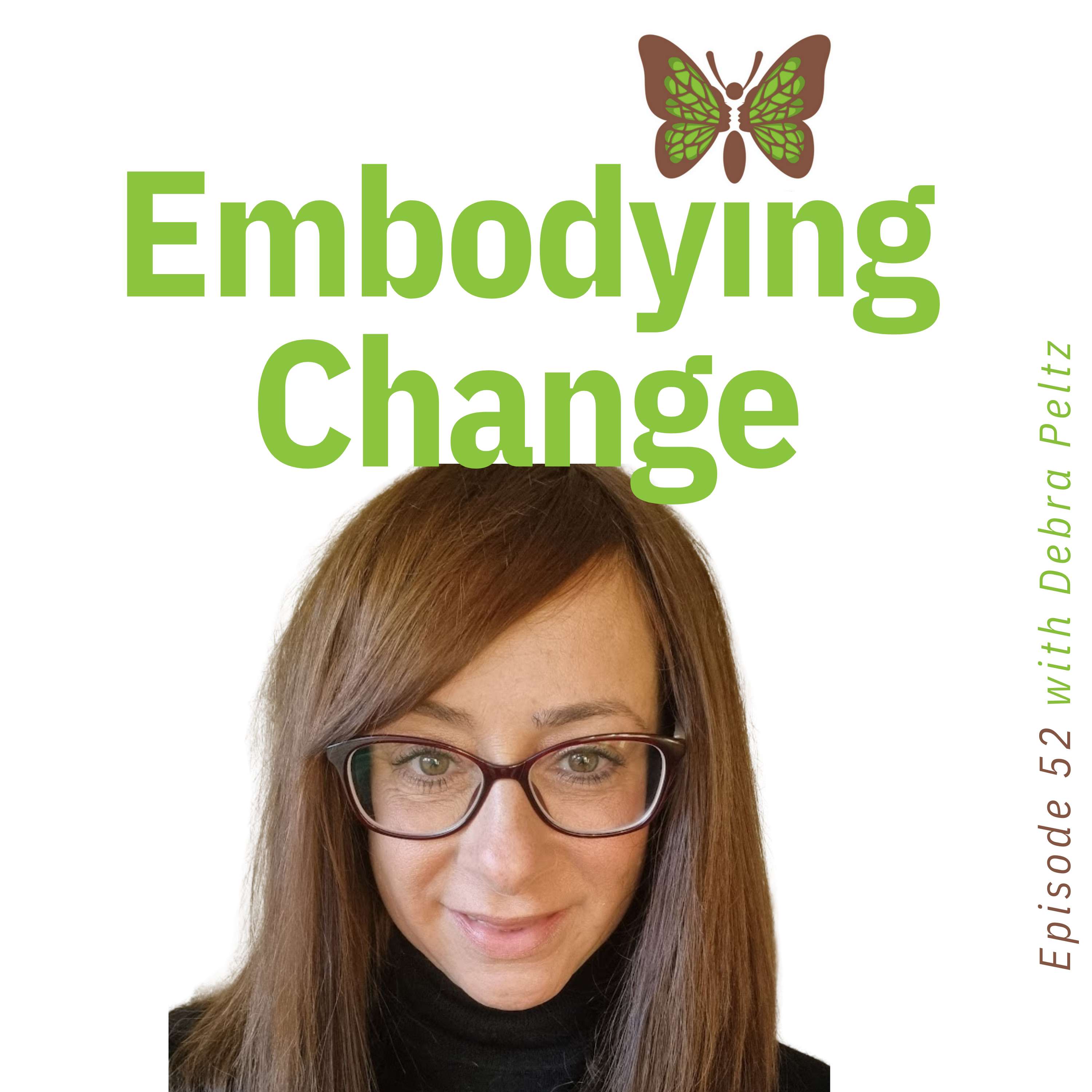
In this episode, Melissa Pitotti talks with Debra Peltz, founder of CollabWork and a well-being champion with a 25-year career in senior administration roles. Debra shares her journey from volunteering in Sri Lanka to working at Save the Children UK and eventually launching her own business.
They explore:
What it means to truly "embody change" in your personal and professional life.Debra’s work at Save the Children UK, first supporting the Exec Director for HR before moving into a Wellbeing Lead role, where she developed and implemented strategies to promote psychological safety, enh...51. Leading from the heart with Sarah Noble
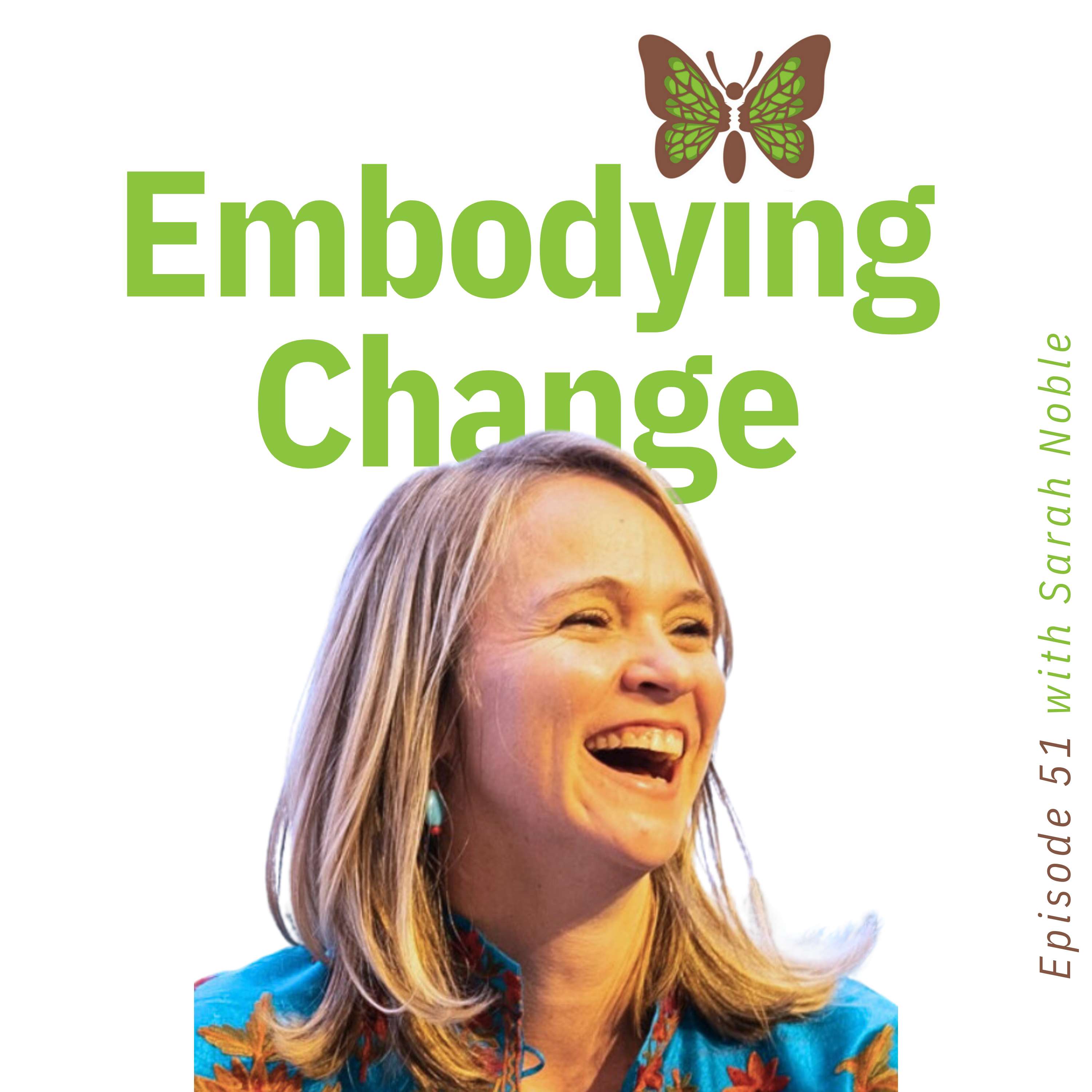
In this episode, Melissa Pitotti is joined by Sarah Noble, Head of Global Engagement at the Caux Initiatives of Change Foundation. Sarah shares her unique perspective on peace-building, storytelling, and how inner development can create outer change. Together, they discuss:
The history and mission of the Caux Palace as a gathering place for change-makers.Sarah’s journey from working at The New Humanitarian to her current role at the Caux Foundation.The importance of storytelling in peace and conflict resolution.Practical ways to incorporate quiet time and self-reflection into your life.How the Inner Development Goals framework helps ac...50. Duty of Care with Rebecca Maudling
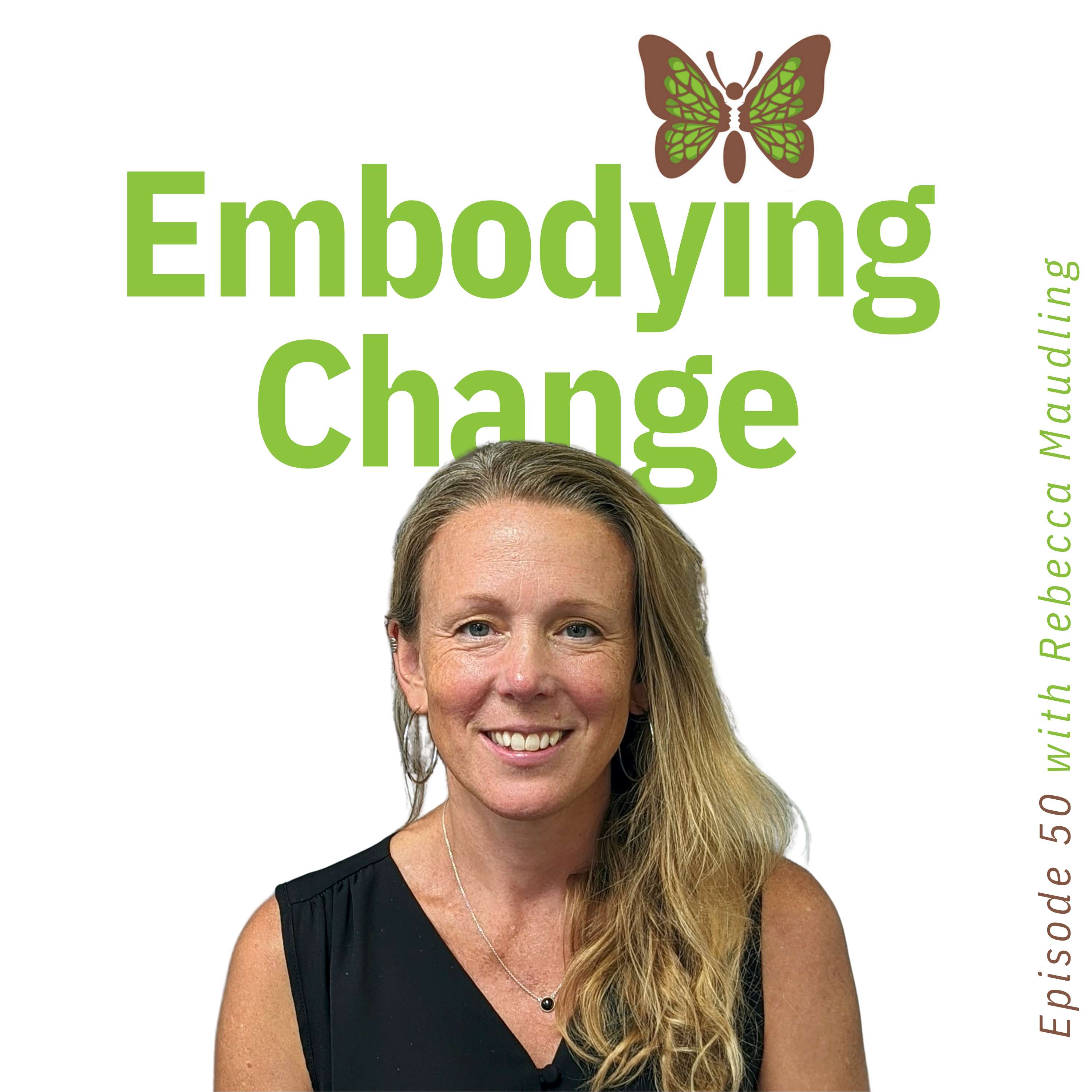
Ever wonder how aid workers can stay safe in some of the world’s most dangerous environments?
Rebecca Maudling, is on a mission to make sure humanitarian staff not only survive but feel confident and equipped to do their work safely — even in the toughest conditions. From co-founding an organization that helps NGOs work more safely, to reshaping how we think about mental health in crisis zones, Rebecca's insights on duty of care are hard earned. Stay tuned to the end to hear her big news about an exciting event coming up.
49. The INGO Problem with Deborah Doane
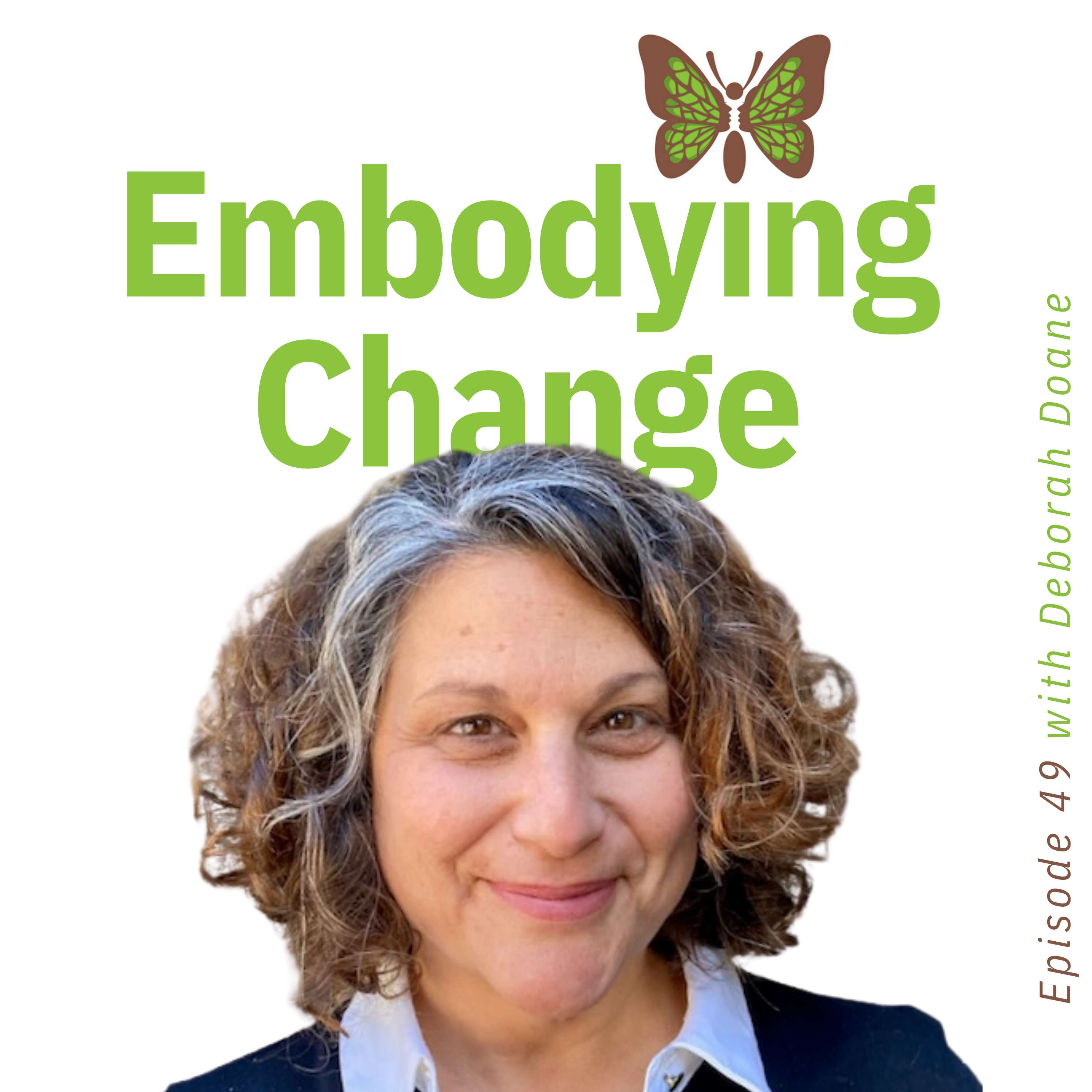
In this episode, Melissa Pitotti speaks with Deborah Doane, author of The INGO Problem: Power, Privilege, and Renewal.
Deborah brings decades of experience in the humanitarian and development sectors, from leading the Ombudsman Project for humanitarian accountability to co-founding the RINGO Project, which is pushing for systemic change in global civil society.
The conversation explores key themes from Deborah’s book, including the challenges of reforming the INGO sector, shifting power to local actors, and embracing new roles for INGOs in the future.
Key topics covered:
A pe...48. Sitting in the gray with Elisha Smith Arrillaga
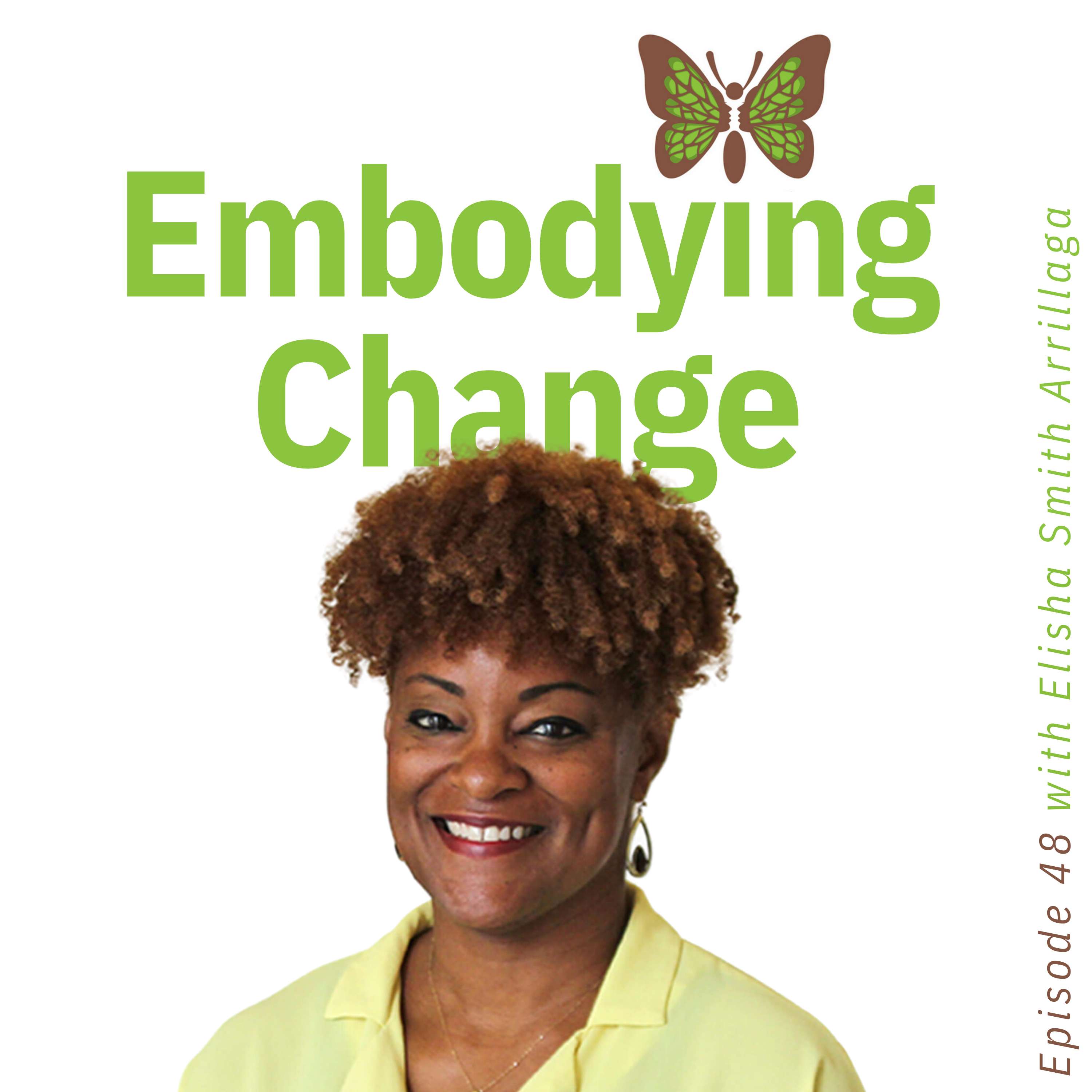
What does it mean to sit in the gray areas of change?
How can philanthropy better support nonprofit leaders and staff in these challenging times?
In today’s episode of Embodying Change, host Melissa Pitotti speaks with Elisha Smith Arrillaga, a thought leader in philanthropy and the leader of the research team at the Center for Effective Philanthropy. Elisha shares her journey from a childhood deeply influenced by civil rights activism to her role in shaping effective philanthropic practices. The conversation covers critical topics, including the findings from the 2024 State of Nonprofits report, which highlights the...
47. Cultivating thriving workplaces with Leanne Marega
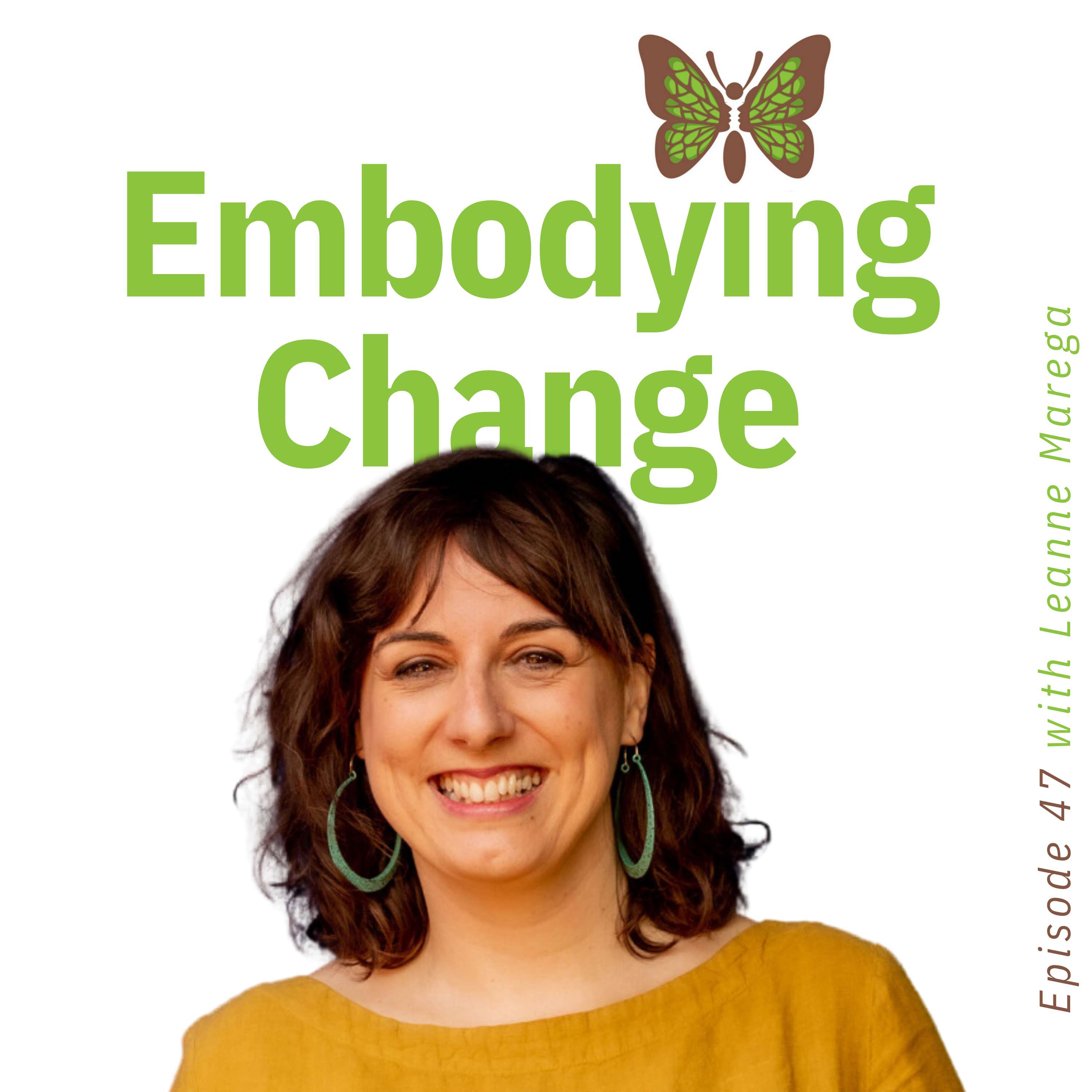
How can we create a thriving workplace culture in the humanitarian sector?
In today’s episode of Embodying Change, host Melissa Pitotti welcomes Leanne Marega, a pioneer in humanitarian workforce well-being and a founder of Thrive Worldwide. Leanne shares her journey from Interhealth Worldwide to founding Thrive Worldwide, emphasizing the critical role of culture in fostering thriving workplaces. You’ll hear about the importance of healthy boundaries, the challenges of leadership in times of crisis, and practical steps to create supportive work environments.
Leanne also opens up about her personal battle with cancer and how it in...
46. Reimagining institutions with Mary Ann Clements
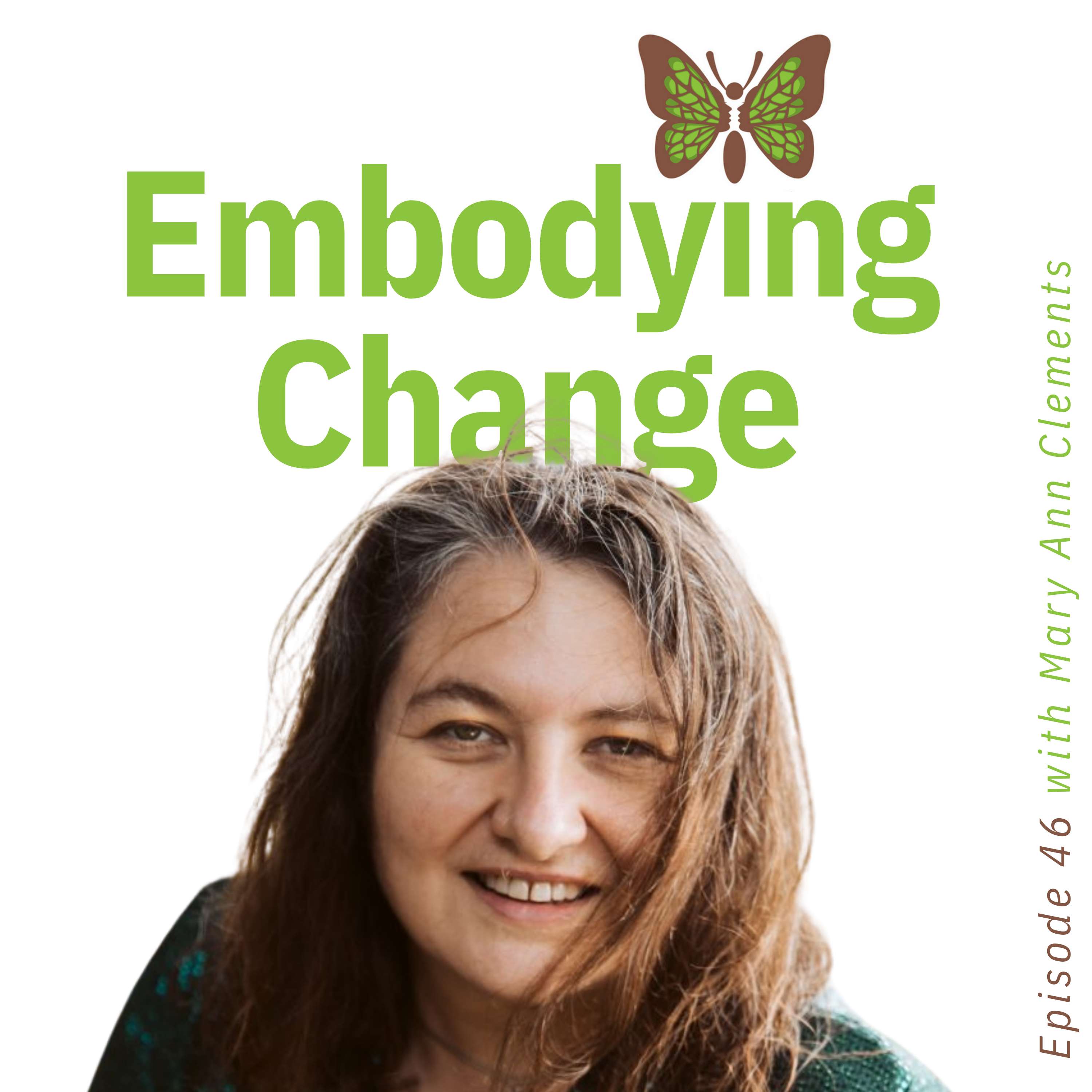
How can we create sustainable change within humanitarian and development organizations?
In today’s episode of Embodying Change, host Melissa Pitotti welcomes back Mary Ann Clements, a pivotal figure in the history of this podcast and Co-CEO at an organisation working on disability justice, ADD International. Mary Ann shares her journey from initiating Healing Solidarity to re-imagining an INGO to become a participatory grant maker. You’ll hear about the importance of embodying change, the challenges of reimagining institutions, and the role of power dynamics in achieving sustainable transformation. Stay tuned until the end for Mary Ann’s insigh...
45. Investing in the nonprofit workforce with Rusty Stahl
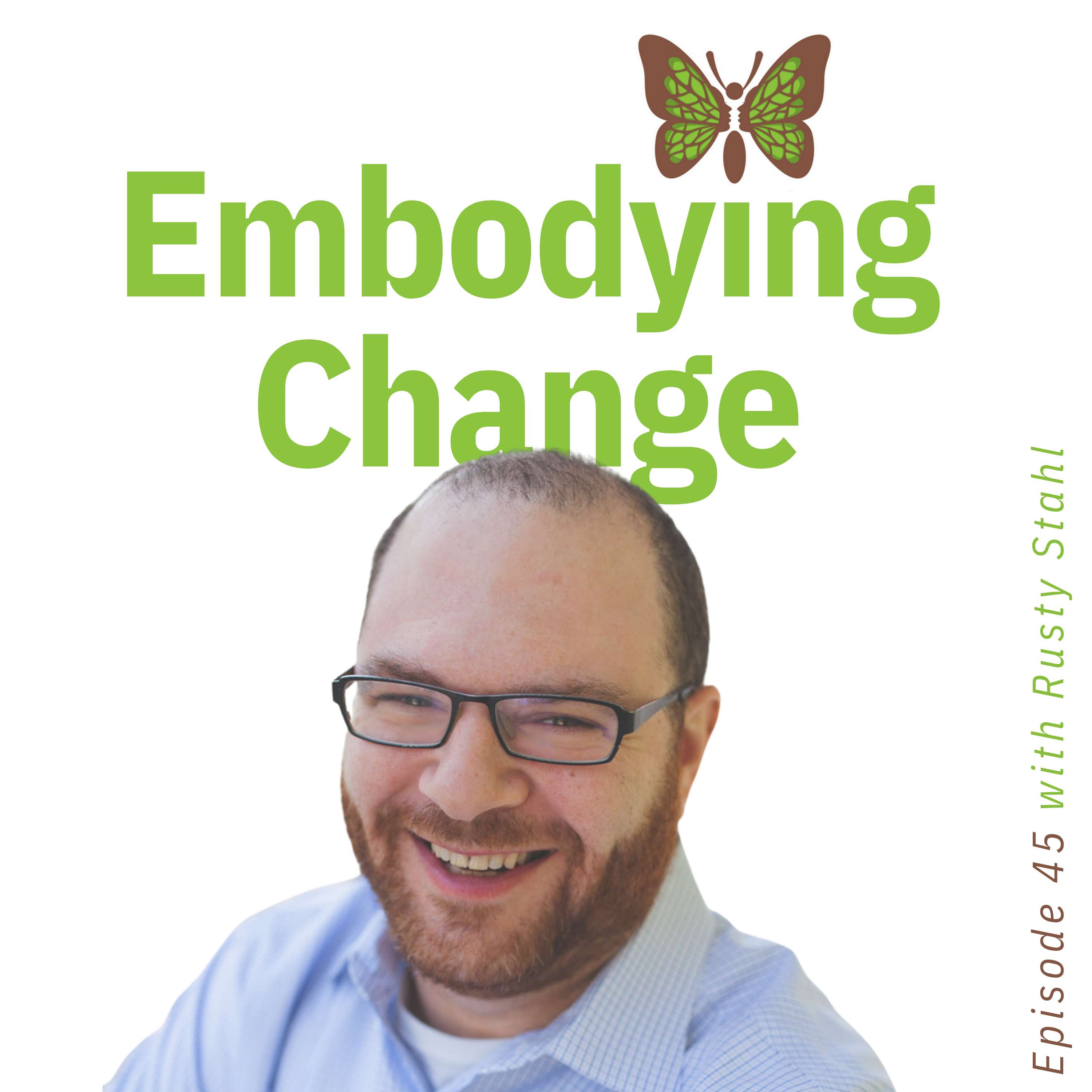
Why is burnout so prevalent in the nonprofit sector? How can funders better support the people who deliver?
In today’s episode of Embodying Change, host Melissa Pitotti welcomes Rusty Stahl, founder of Fund the People. Rusty shares his journey into philanthropy, the systemic issues leading to chronic underinvestment in nonprofit staff, and the innovative solutions Fund the People advocates for. You’ll learn about the harmful myths surrounding nonprofit overhead, the importance of treating nonprofit staff as essential assets, and practical steps to foster a healthier, more sustainable nonprofit sector.
If you're passionate about crea...
44. Rolling up our sleeves with Pauline Chetcuti
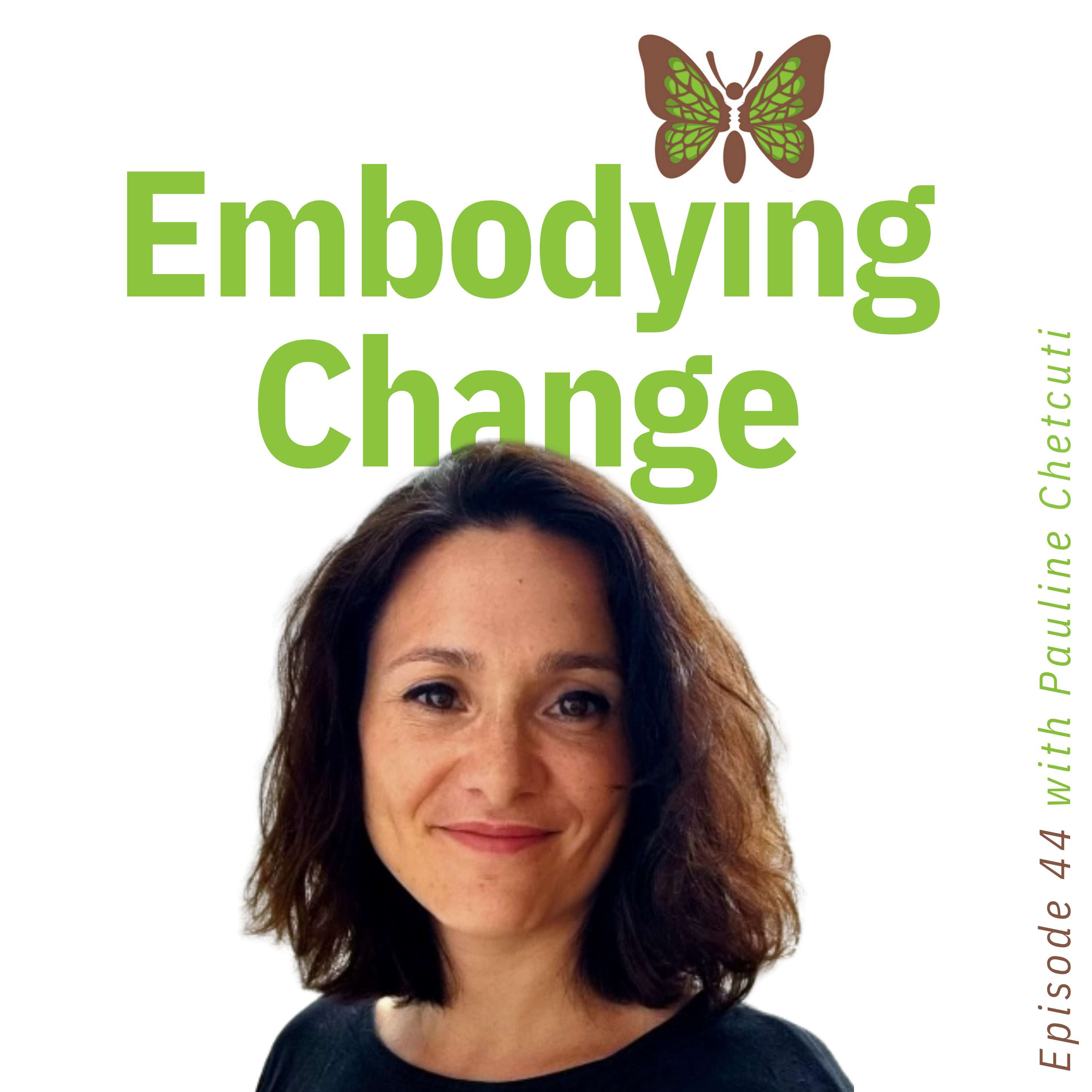
Do you ever feel overwhelmed by the complexities and challenges of humanitarian work? Are you looking for signs of hope that, together, we can transform the sector?
In today’s episode of Embodying Change, host Melissa Pitotti welcomes Pauline Chetcuti, the newly elected president of VOICE. Pauline shares her journey from international law to humanitarian advocacy, discussing the importance of saying no, the power of collective action, and the challenges of decolonizing and transforming humanitarian work.
Today’s guest
Pauline Chetcuti is the newly elected president of VOICE, the largest European huma...
43. Redefining “resilience” with Gemma Houldey
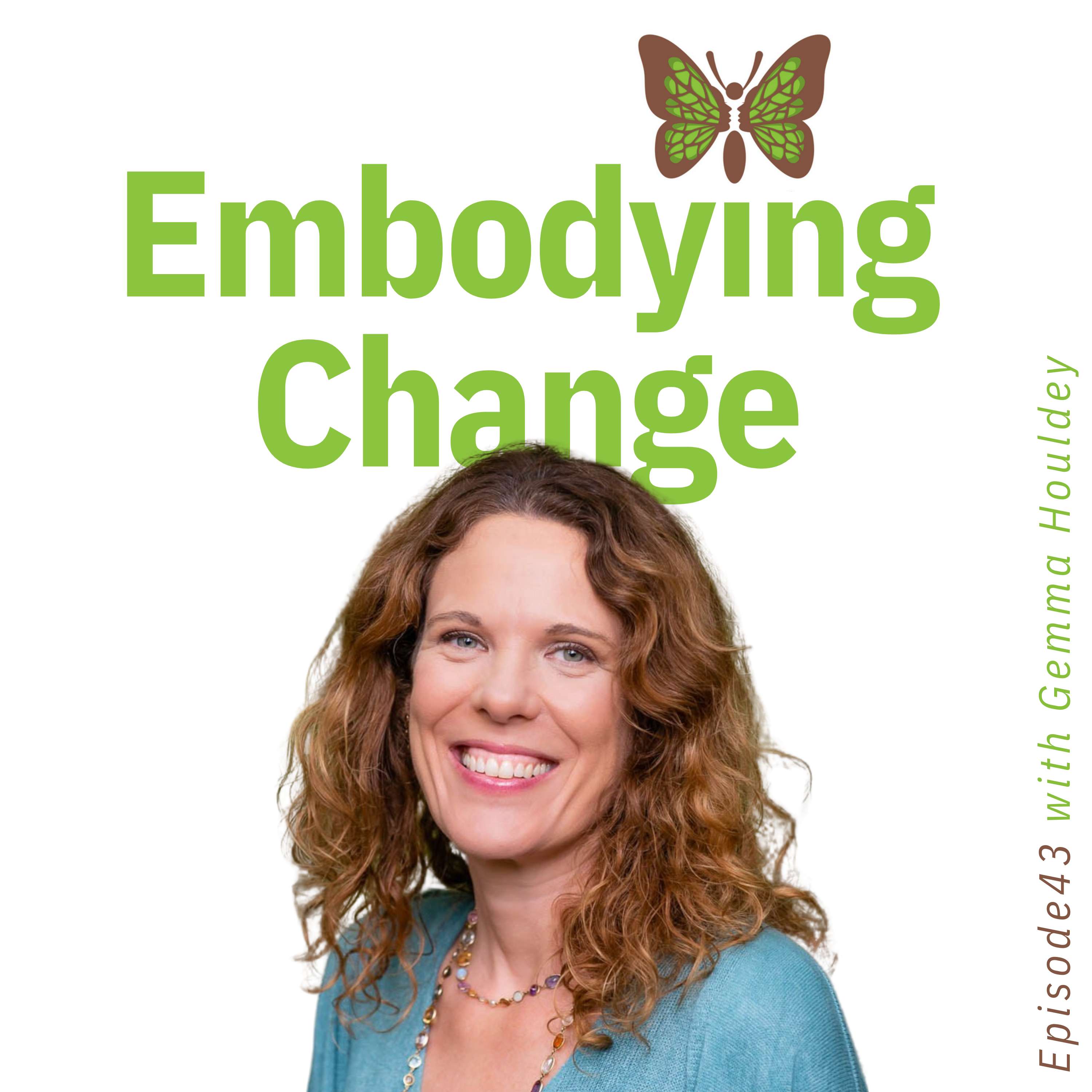
Do you ever wonder how vulnerability and power dynamics shape your work in the humanitarian sector? Are you curious about how funding practices can better support well-being?
In today’s episode of Embodying Change, host Melissa Pitotti welcomes back Gemma Houldey, author of The Vulnerable Humanitarian. Gemma shares her journey from human rights advocacy to becoming a thought leader regarding humanitarian well-being. You’ll hear about the importance of showing up with vulnerability, understanding power dynamics, and how feminist funders are pioneering new approaches to support long-term organizational well-being.
If you're passionate about creating a more...
42. We are feminist leaders with Leila Billing and Natalie Brook
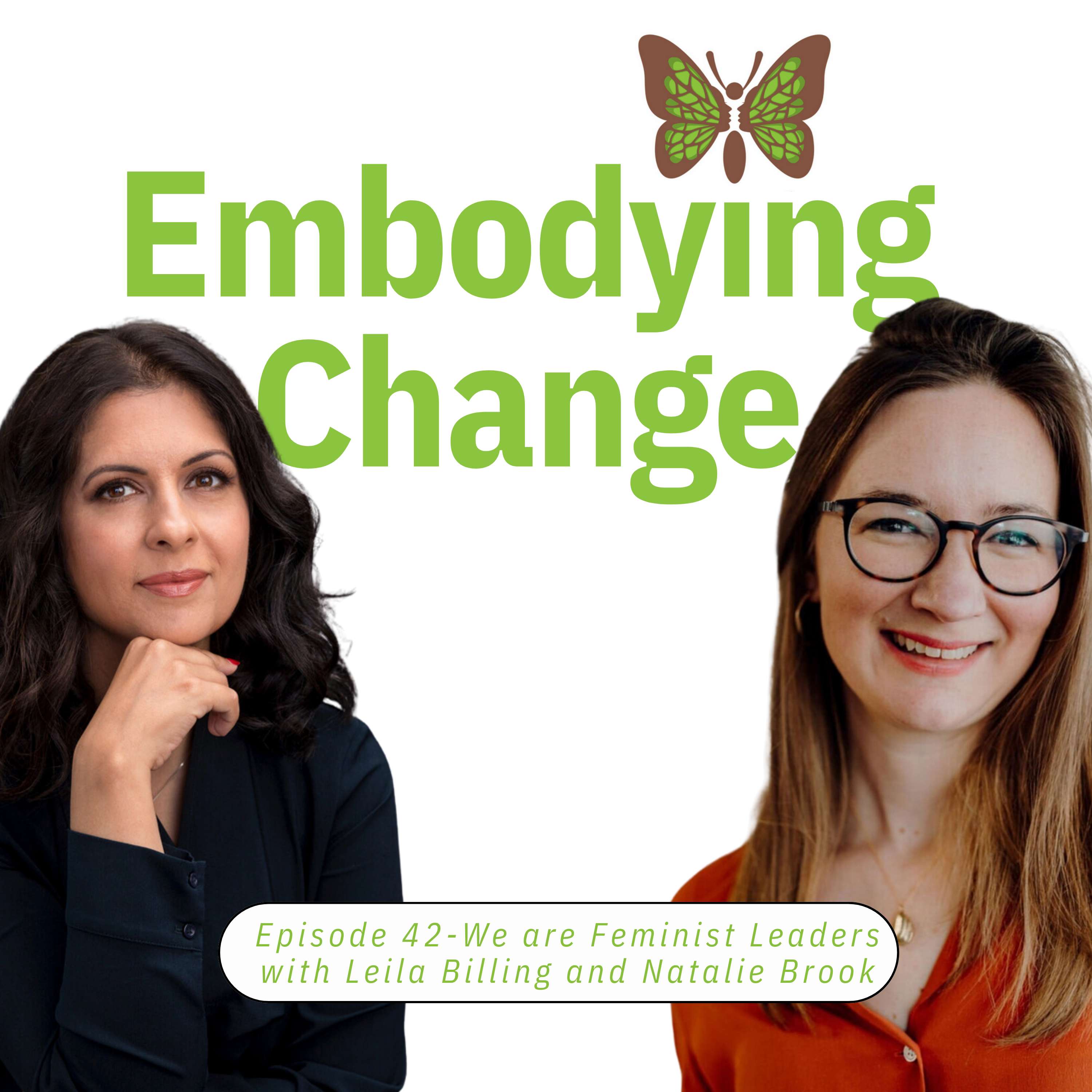
Episode 42: We Are Feminist Leaders with Leila Billing and Natalie Brook
Do you ever feel conflicted by traditional leadership models that don’t align with your values? Are you curious about how feminist principles can transform the way we approach leadership, especially in the humanitarian sector?
In today’s episode of Embodying Change, host Melissa Pitotti sits down with Leila Billing and Natalie Brook, founders of We Are Feminist Leaders. Leila and Natalie share their journey from feeling disillusioned by patriarchal and colonial leadership structures to creating a transformative program that empowers leaders to b...
41. "If it's itchy, uncomfortable, messy, and hurts..." with Sarah Diedro Jordão
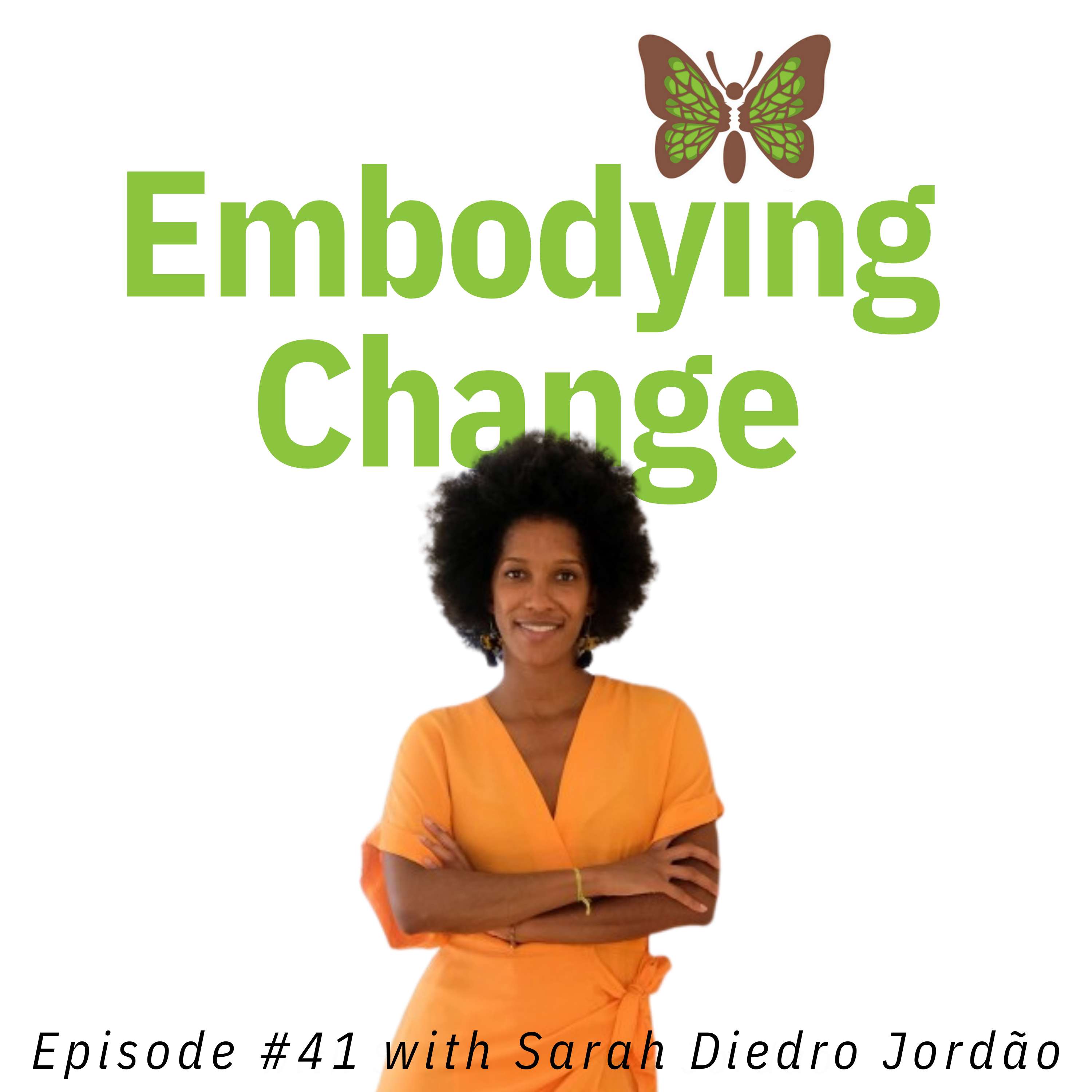
This conversation with Sarah Diedro Jordão provides a deep and heartfelt exploration of what it means to embody change and foster love in the quest for a more equitable society.
“Going through a painful process can very much be part of embodying change. If it's itchy, uncomfortable, messy, and hurts, change is probably on the other side of that. So there’s hope."
-Sarah Diedro Jordão
Sarah Diedro Jordão is a multi-passionate & versatile consultant. She works as a communications strategist, DEIB consultant, facilitator and podcast host. The drivin...
40. Menopause with Scotti McClaren
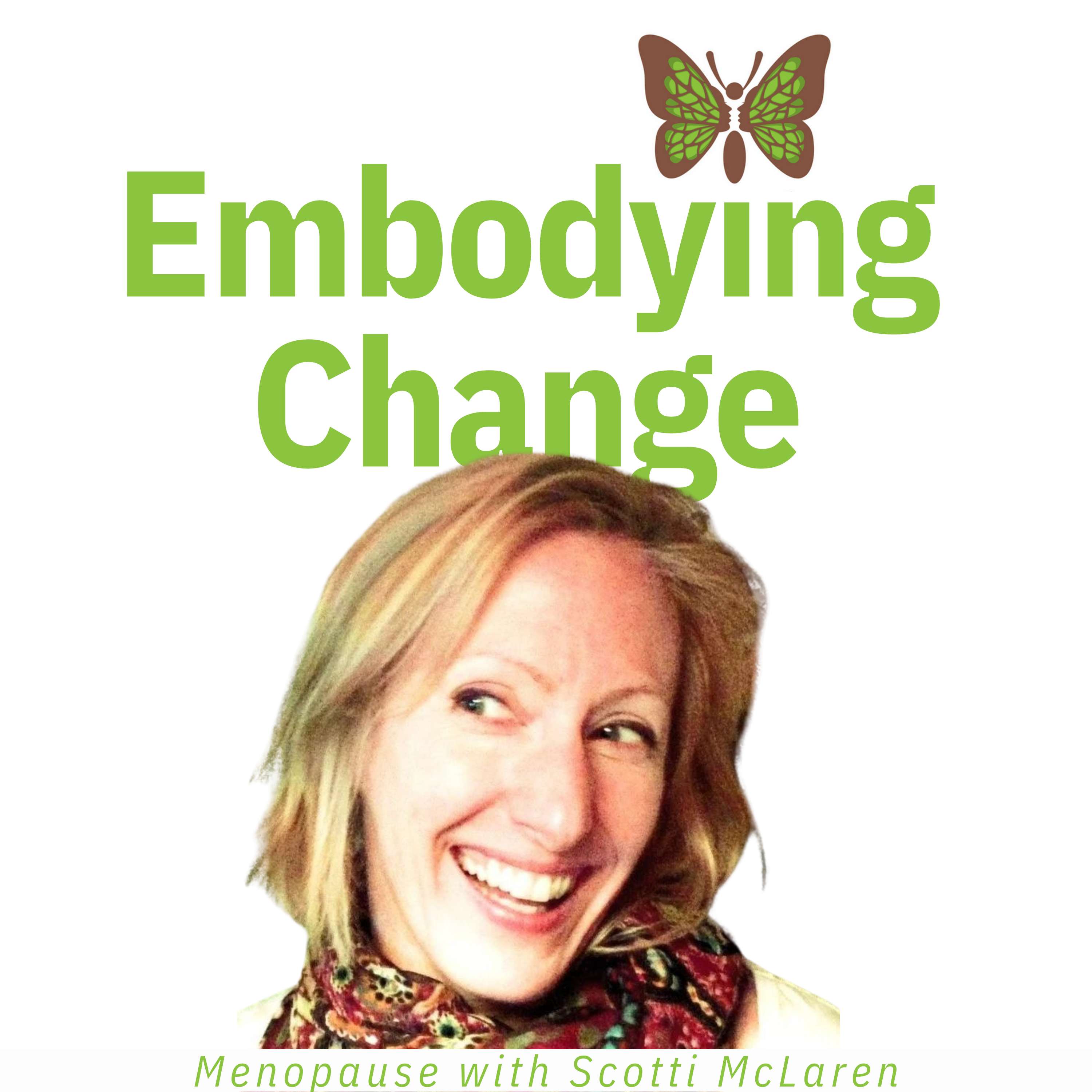
Humanitarian women are exposed to chronic stress, which can impact their experience of peri-menopause, menopause and post-menopause.
In this episode of Embodying Change Scotti McLaren shares her experience and insight as it relates to this under-explored and yet powerful time of a woman’s life – before, during and after actual “M day.”
What are the symptoms and what can we do about them?
Scotti practices functional medicine and personalized nutrition, specializing in menopause and mental health. Following a career in audit and humanitarian aid (MSF), and eventual burnout...
39. The power of self-leadership with Lucette Quarteron
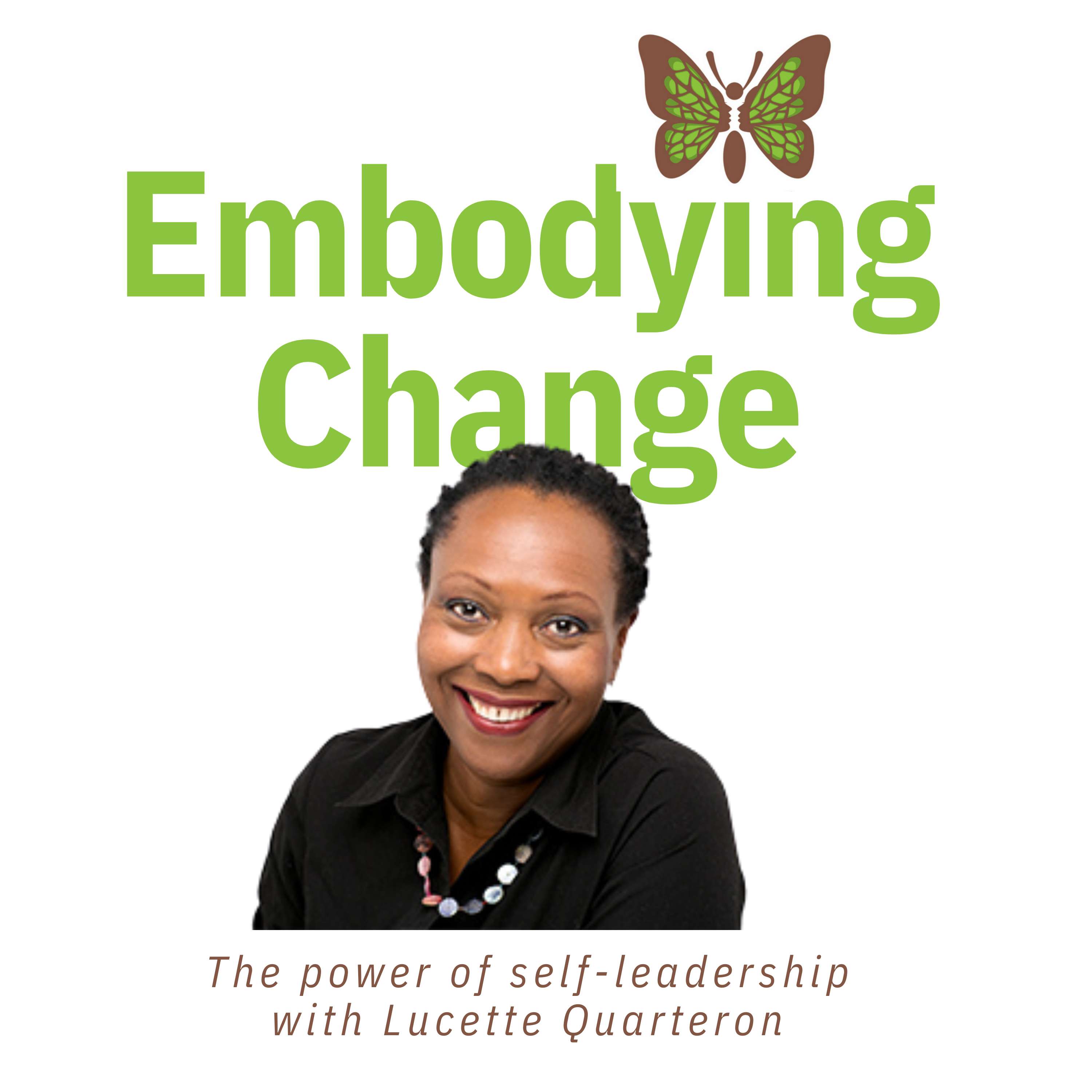
In this light-hearted episode of "Embodying Change," we sit down with Lucette Quarteron, a dynamic global citizen and visionary leader. Lucette shares her unique insights on self-leadership, the proper use of power, and conflict management, drawing from her rich personal and professional journey. Discover how Lucette transforms organizational cultures, fosters workplace trust, and empowers others to embrace change.
Key Takeaways:
The importance of self-leadership and healing personal wounds to lead others effectively.Strategies for managing emotions in conflict situations.The significance of standing up for your values and setting boundaries.How to build trust and acknowledge...38. How to get and keep an accountability buddy with Helen Dunnett
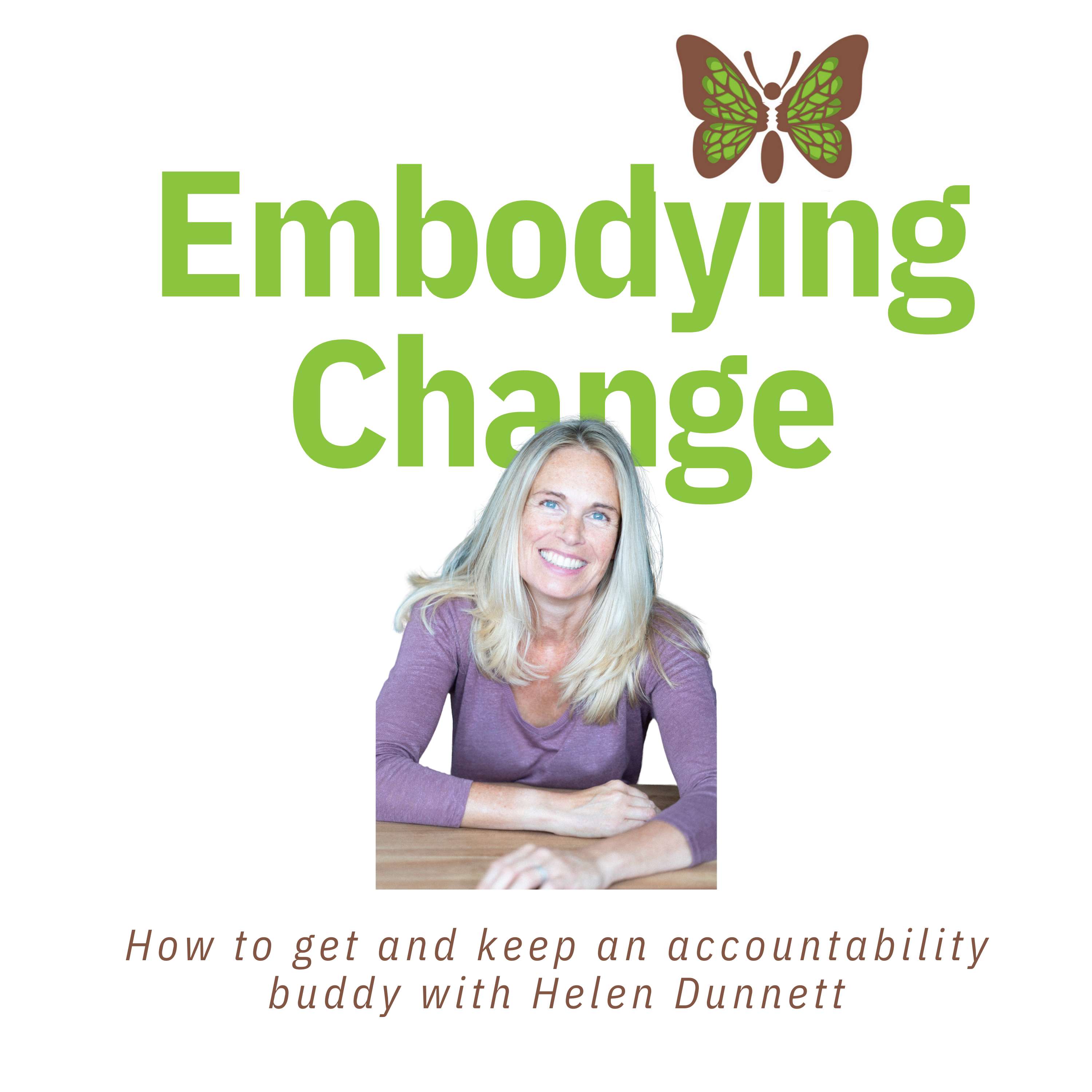
Join us in this conversation with Helen Dunnett, Melissa’s accountability buddy. In today's episode, Helen shares her personal journey of transformation and discusses the powerful tools of nonviolent communication and assertiveness that have shaped her approach to coaching. She also shares the story of how she approached Melissa years ago to become her accountability buddy, and the five questions she designed to guide their weekly conversations.
What You'll Learn:
The story of Helen's career transition from communications and marketing to coaching.Insights into nonviolent communication and how it can transform workplace and personal relationships.Practical tip...37. Get in the "growth zone" with Cindy Rocha
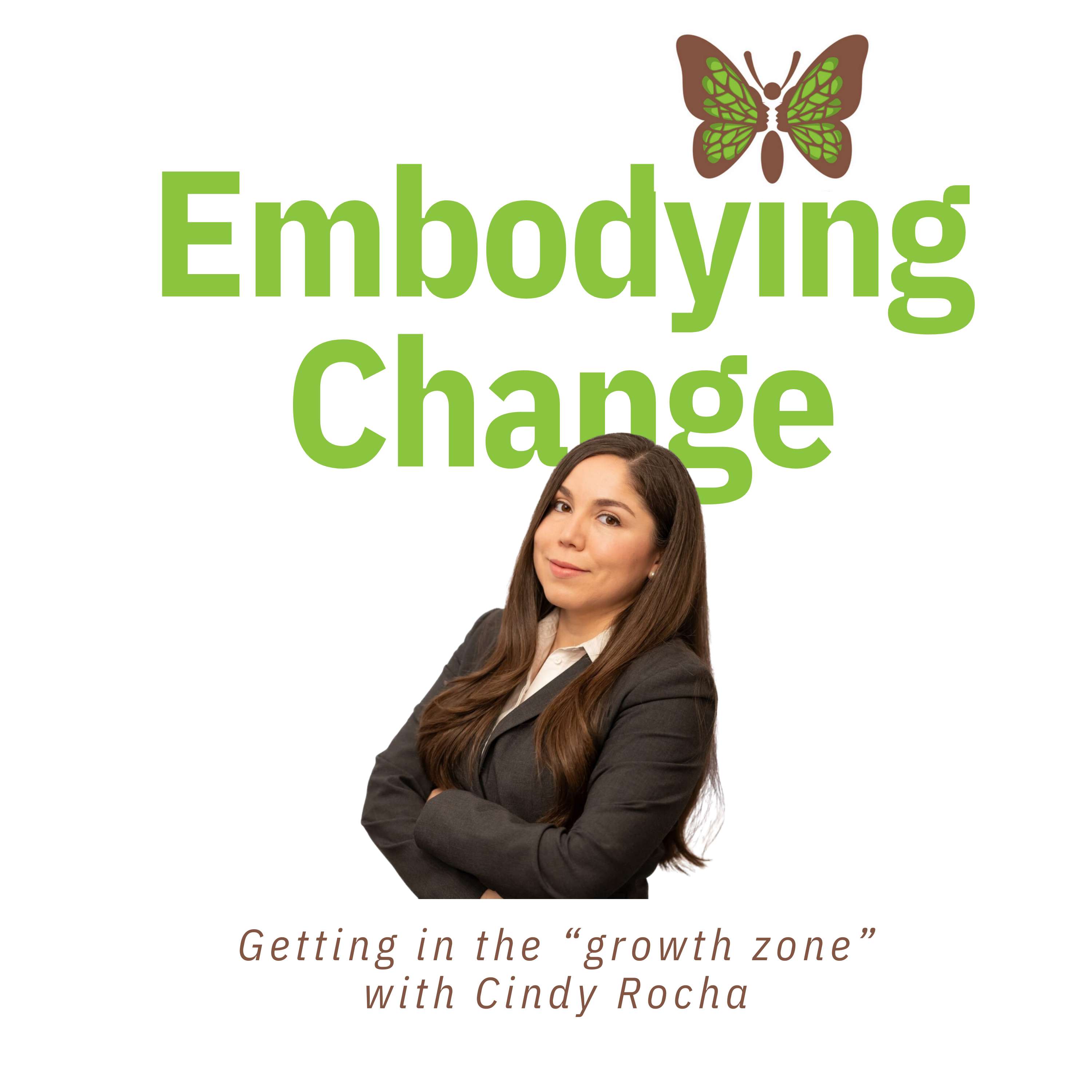
Join host Melissa Pitotti as she welcomes change advocate Cindy Rocha for a morning conversation filled with insights on embracing vulnerability and stepping out of comfort zones for transformative personal and professional growth.
Highlights:
1. Defining Embodying Change: Cindy explains how real change involves putting oneself in the 'growth zone' — a space beyond comfort that necessitates learning, unlearning, and relearning.
2. Navigating Change and Discomfort: Discussing the discomfort that accompanies change, Cindy illustrates how adapting to new situations is crucial for development and progress.
3. Impact of Technological Evolution: They delve into...
36. Identity and belonging with Annemarie Shrouder
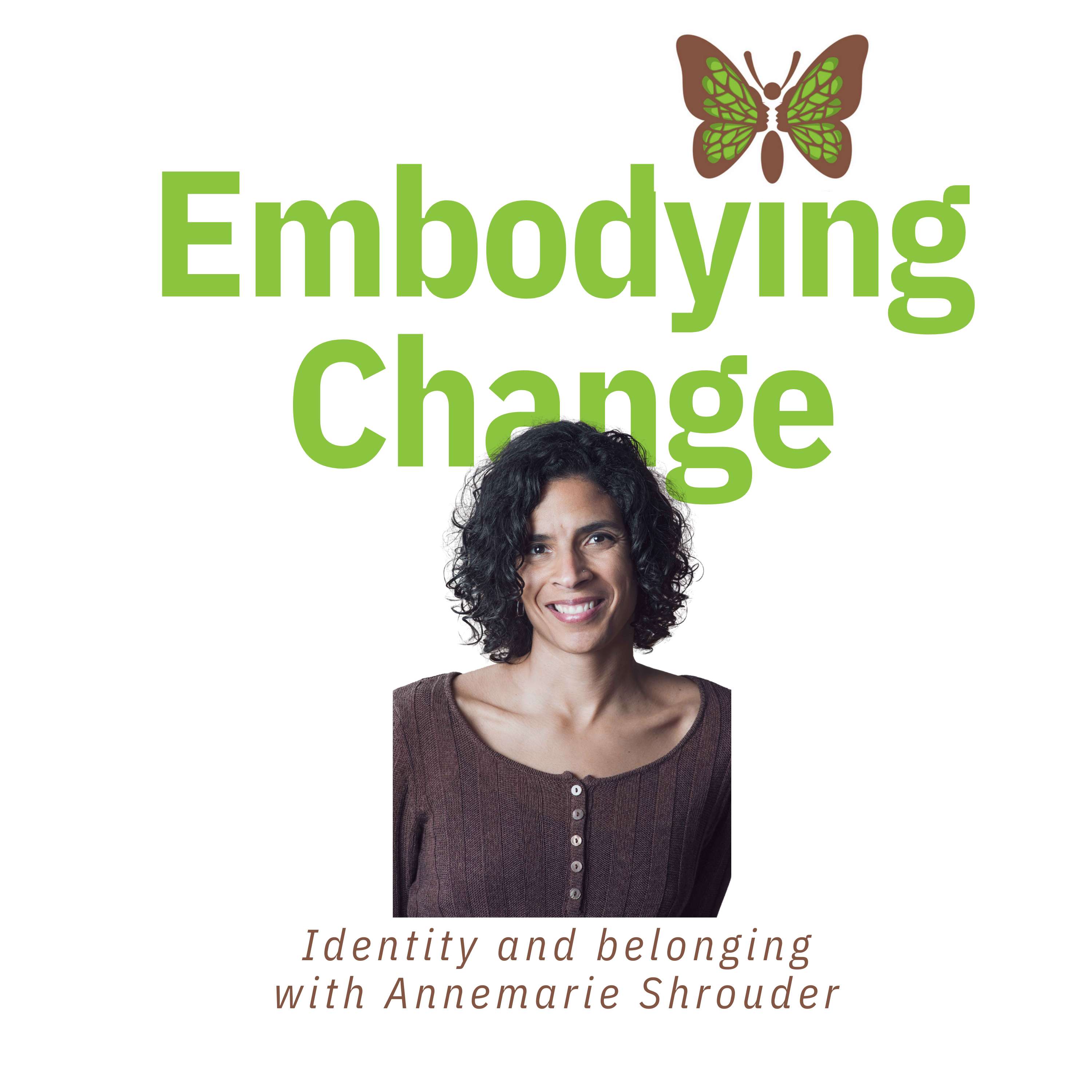
Annemarie Shrouder shares her personal journey with identity and discusses her work building inclusive cultures and communities. She and Melissa explore the difference between learning and BEING something (embodying change), the challenges of mixed race identity, creating safe and/or brave spaces, and the importance of representation, belonging and community support.
Topics Discussed:
Identity and embodying change Inclusion and belonging in organizations Leadership, empathy and localization Diversity in leadership and overcoming barriers Creating inclusive cultures and speaking up against injusticeKey Insights:
Embodying change means living what you learn, not just talking about it Inclusion...35. The #1 thing you need to transition with Nasra Ismail
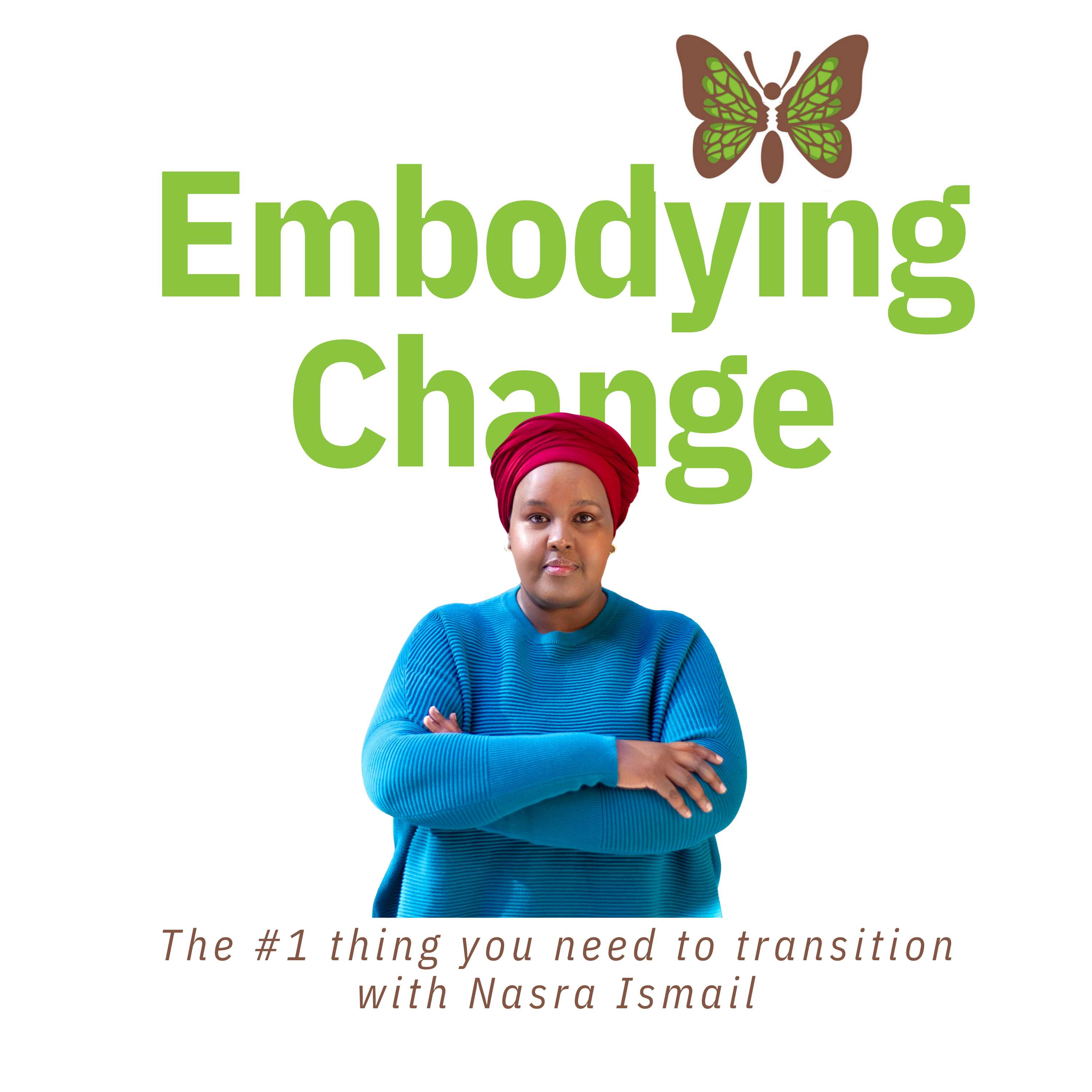
In this episode, Melissa Pitotti and Nasra Ismail have a candid conversation about navigating transitions, power dynamics, and the principles of localization in the humanitarian sector. They share personal anecdotes and insights into their professional journeys, discussing the challenges and opportunities they encountered along the way. From experiencing shifts in power dynamics to embracing localization as a personal and professional practice, they delve into the complexities of working in the humanitarian field and the importance of aligning personal values with professional endeavors. Join them as they explore the intersection of personal and professional growth, which could be helpful for...
34. Giving Joy with Joy Kolin
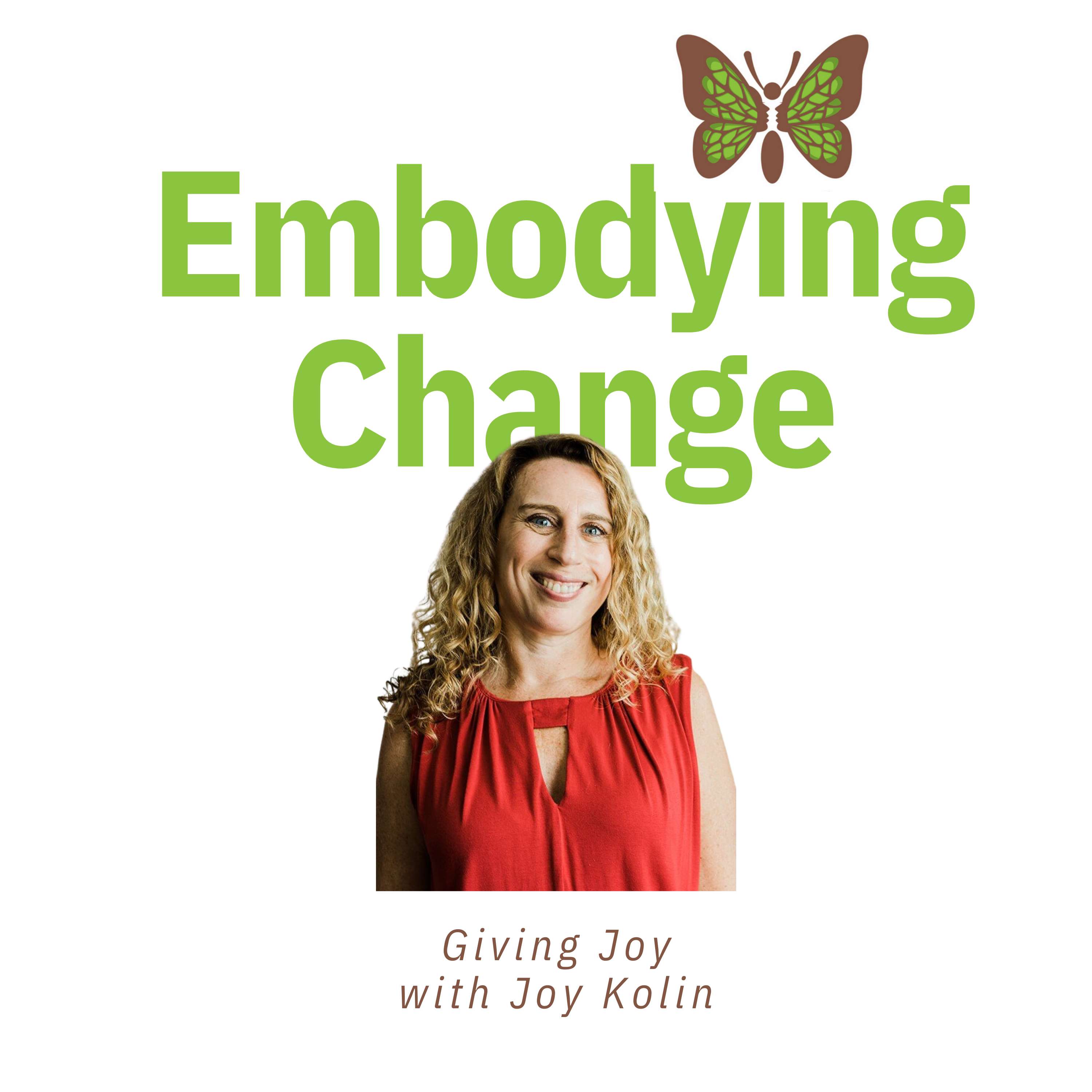
In this episode Melissa speaks with Joy Kolin, Executive Director and Board President of Giving Joy.
Joy has 20-years of experience in the field of international development, a career that has taken her to over 60 countries. Throughout her travels, Joy found herself touched by a common trend - the immense ability of women to affect positive change if given the resources and opportunities to do so. In 2018 she established Giving Joy as a way to harness and grow the power and the influence of women-led ventures the world over. Now, women from any country, across a...
33. Life-centric work with Wouter Smeets
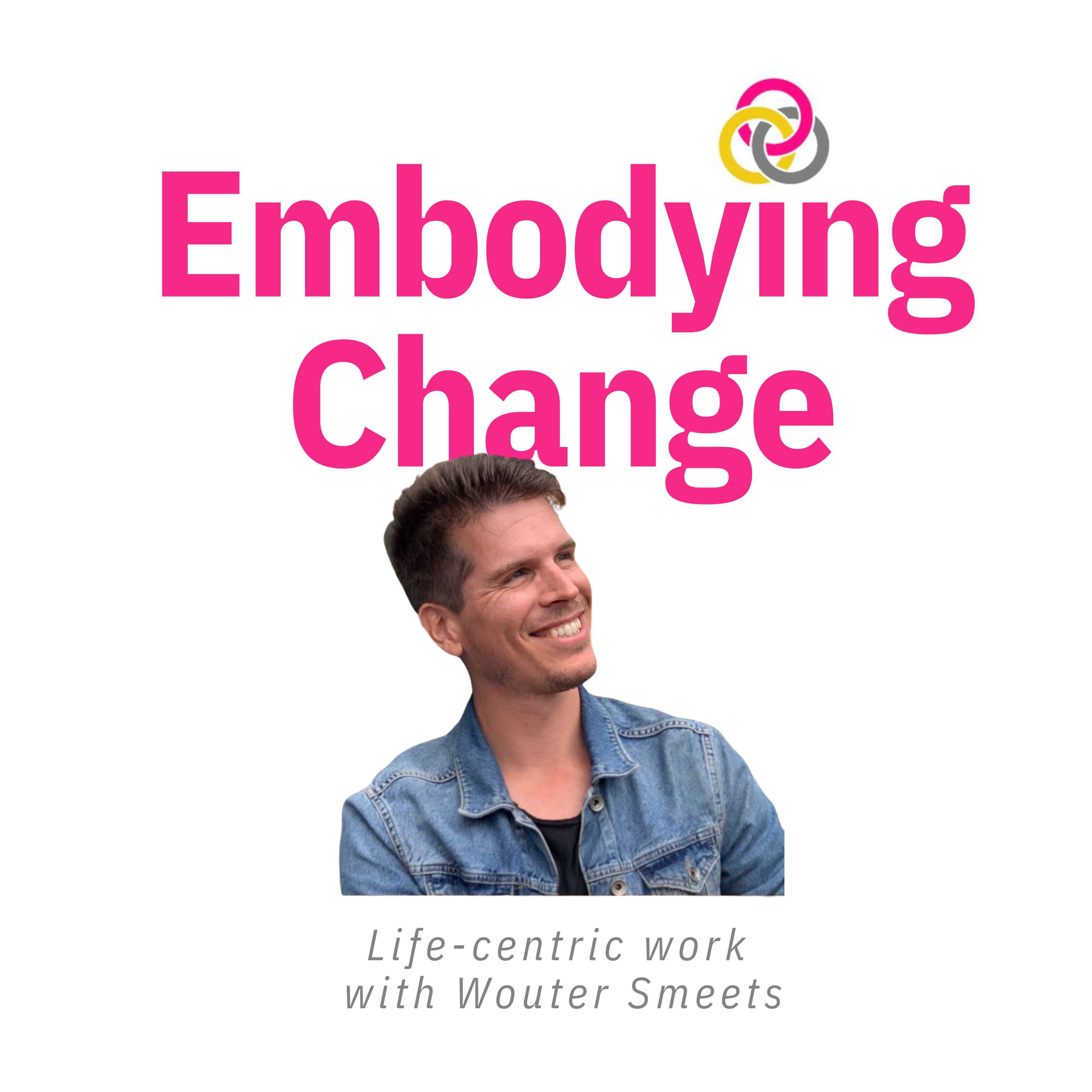
How can we better manage our workload, as per Commitment 8 of the Core Humanitarian Standard?*
In this episode Melissa speaks with Wouter Smeets, a design-thinker, about how to re-shape our work in a way that gives us energy, rather than drains it. He gives us some good questions to ask ourselves, like: How do we design our morning routine? What makes a break a good break? What task can we do first that will put us on good footing for the rest of the day? What are some life-centric strategies for managing our calendar? He also reveals a...
32. A victim/ survivor perspective with Sabrina Prioli
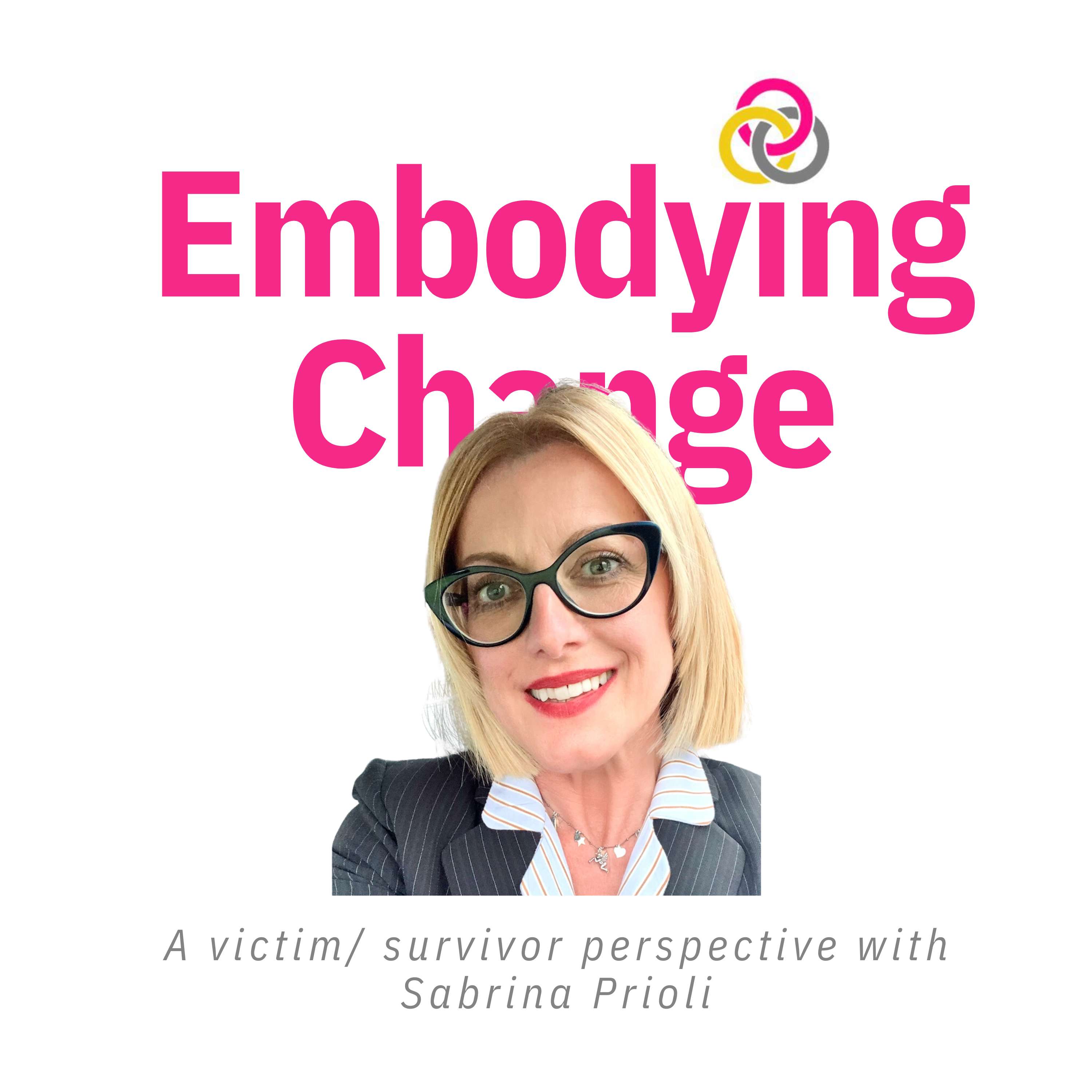
In this conversation, Melissa speaks with Sabrina Prioli, the author of a memoir called “Rise up, phoenix” and one of the victim/survivors of the 2016 Terrain Compound Attacks in Juba, South Sudan. Sabrina shares her insights into how to better support victim/survivors and hold perpetrators accountable for their actions. She also explains the nuances of the words “victim” vs. “survivor” and how to cope when hearing about traumatic incidents like hers.
*Note: This conversation includes references to rape and may be triggering for some listeners.*
Sabrina Prioli is currently a Certified Profe...
31. Mental health at work with Dr. Aiysha Malik
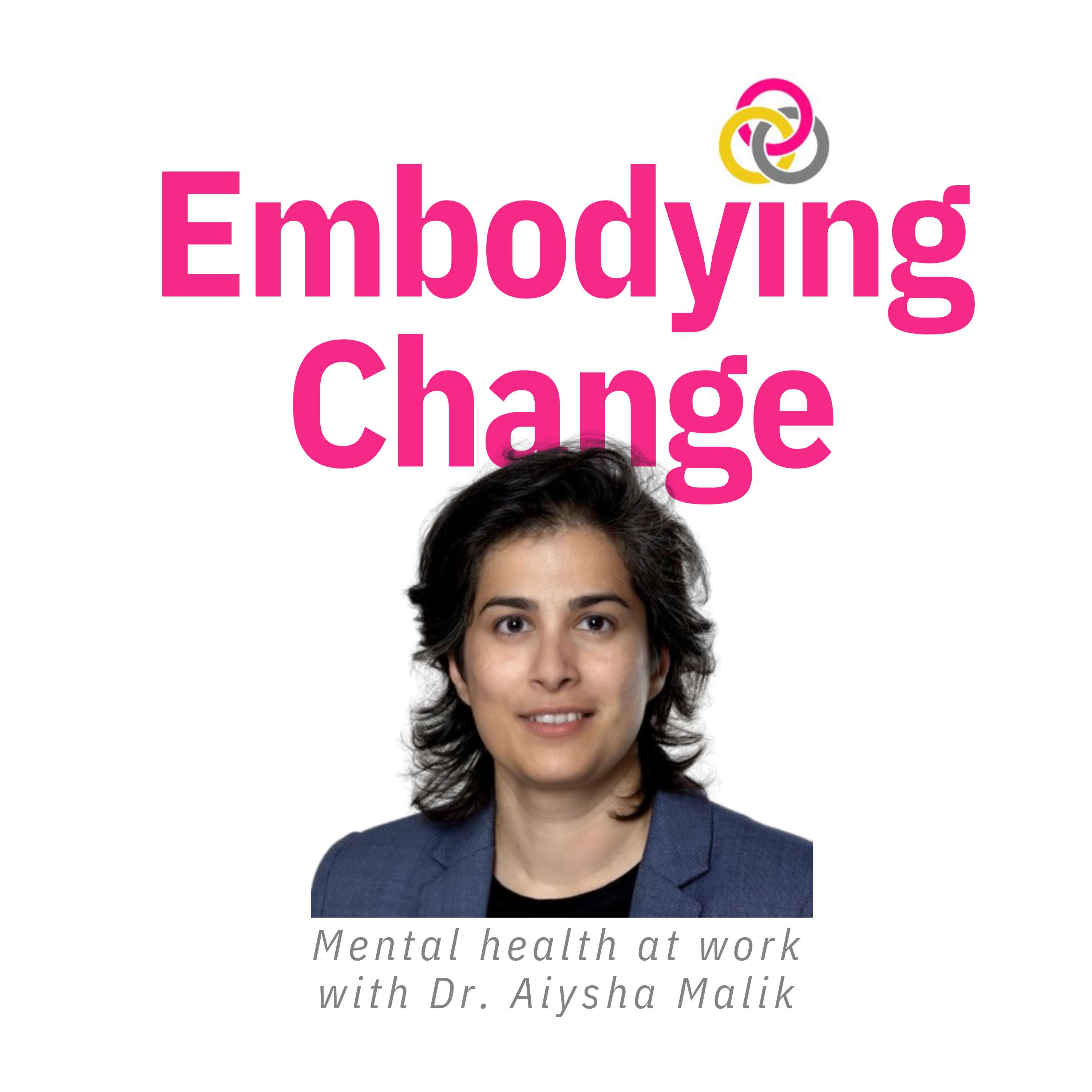
In this episode Melissa speaks with Dr. Aiysha Malik, a mental health specialist at the World Health Organization working for a world that supports, improves, and does not harm mental health. They discuss the WHO guidelines on mental health and work and accompanying WHO-ILO policy brief. What do the guidelines say and what can you do with them?
Check out the WHO guidelines on mental health at work here: https://www.who.int/publications/i/item/9789240053052
And the WHO-ILO mental health at work policy brief here: https://www.who.int/publications/i/i...
30. When you picture Doctors without Borders what do you see?
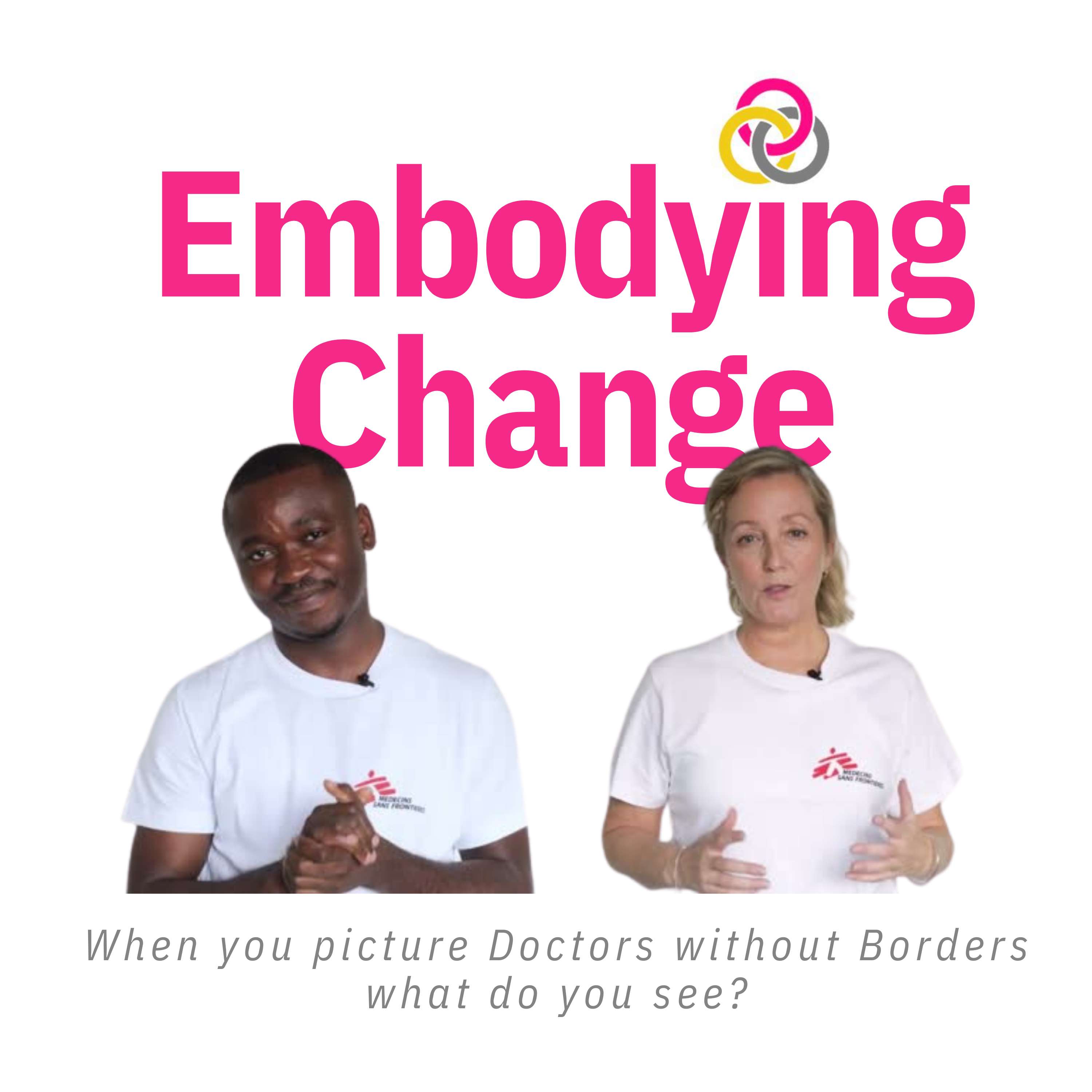
Melissa speaks with: Dr. Chinonso Emmanuel Okorie, an MSF doctor living in Rwanda who recently completed a mission in Yemen; Lindis Hurun, the General Director of MSF Norway; and Ryan Rodrick Beiler, a multimedia producer for MSF Norway. They and several colleagues were involved in the production of a video that has made waves in the humanitarian community for its handling of structural racism and patient dignity using a technique called “the duet.” In this podcast interview they talk about why and how the video came to be, the organisational culture changes that were happening behind the scenes, the publ...
29. The Pledge for Change with Degan Ali
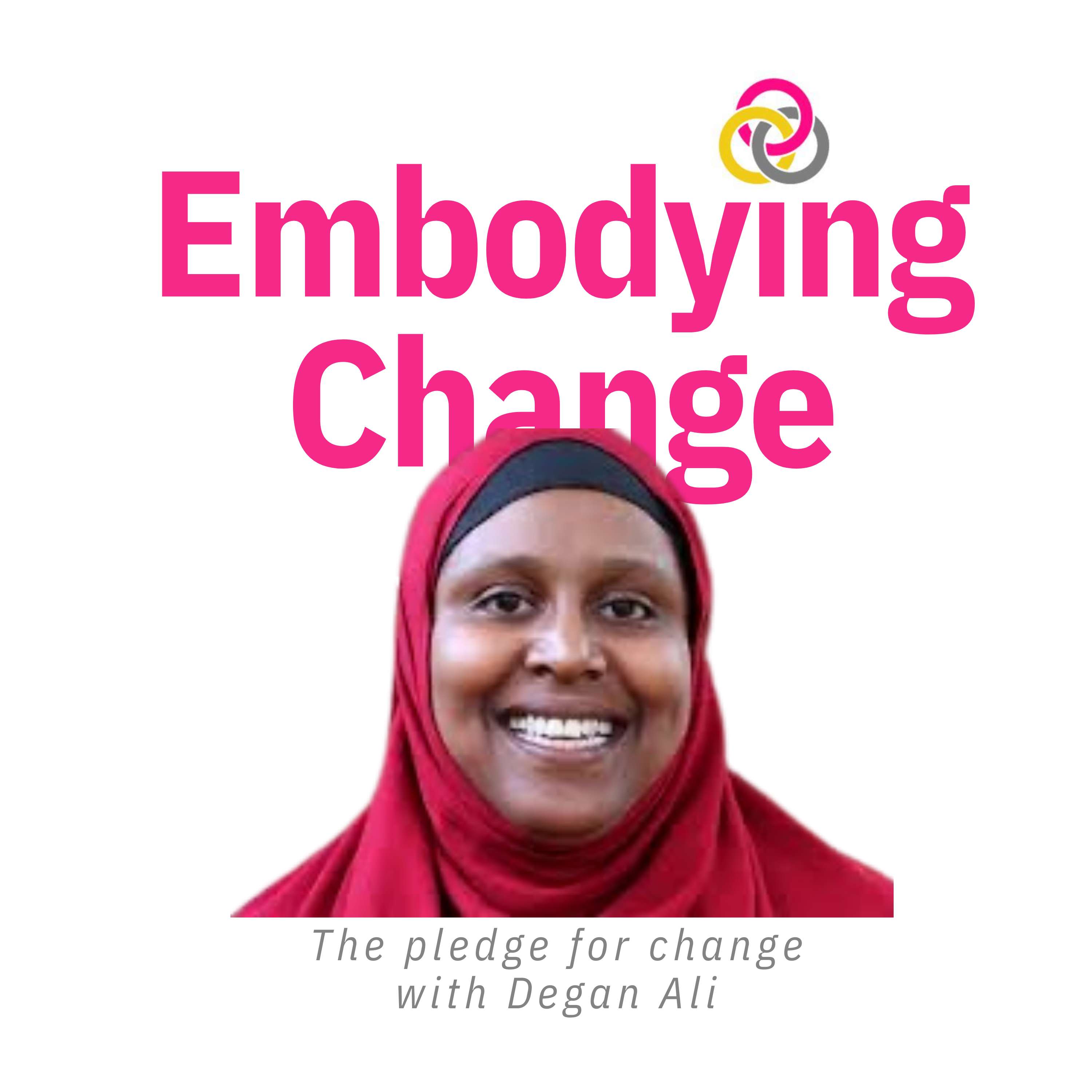
In this episode Melissa Pitotti speaks with Degan Ali, the Executive Director of Adeso, about the story behind the Pledge for Change 2030. They explore the ways in which the process that led to the Pledge was informed by lessons learned from the Charter for Change and the Grand Bargain. They consider the need for brave leaders to have safe spaces to come together on tough issues - and for leaders to be evaluated on metrics of success other than “bigger is better.” They end with reflections on equitable partnerships and accountability mechanisms.
Degan Ali is Execu...
28. Mental models with Faye Ekong of RavelWorks Africa
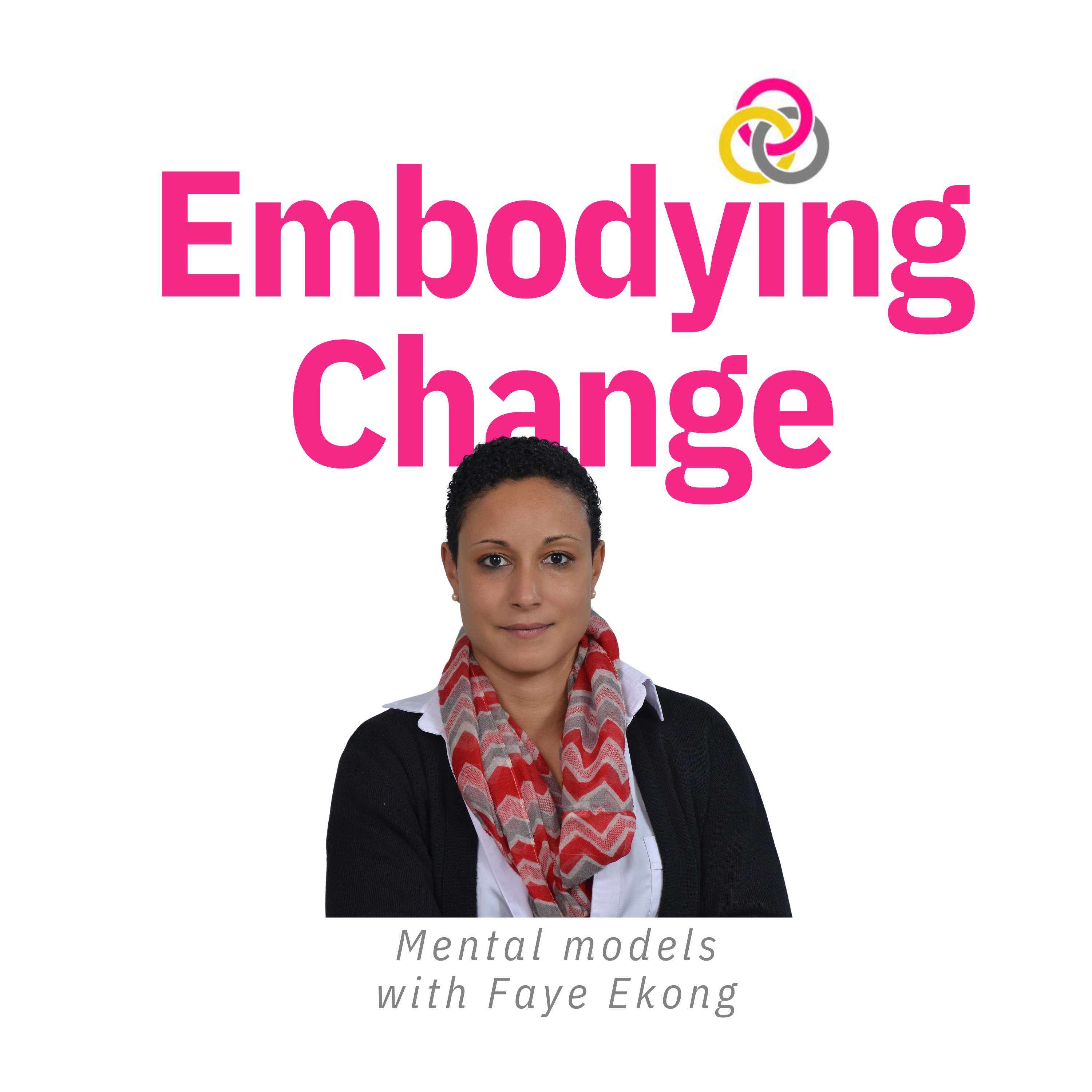
In this episode Melissa speaks with Faye Ekong of RavelWorks Africa about common challenges in aid organisations, particularly as they relate to decolonising aid in a “post” COVID world.
Faye Ekong is the Managing Director of RavelWorks Africa. She has been in Human Resources, Learning & Personal Development for over 10 years. She is an SHRM-Senior Certified Professional (SHRM-SCP), holds a Masters of Science in International Management and a Bachelor of Arts in European Studies and Modern Languages. To learn more, check out:
- Ravelworks Africa: https://ravel.works/
- LinkedIn: https://www.linkedin.com/i...
27. Everyone needs a safe space to flourish with Oge Chukwudozie of RSH Nigeria
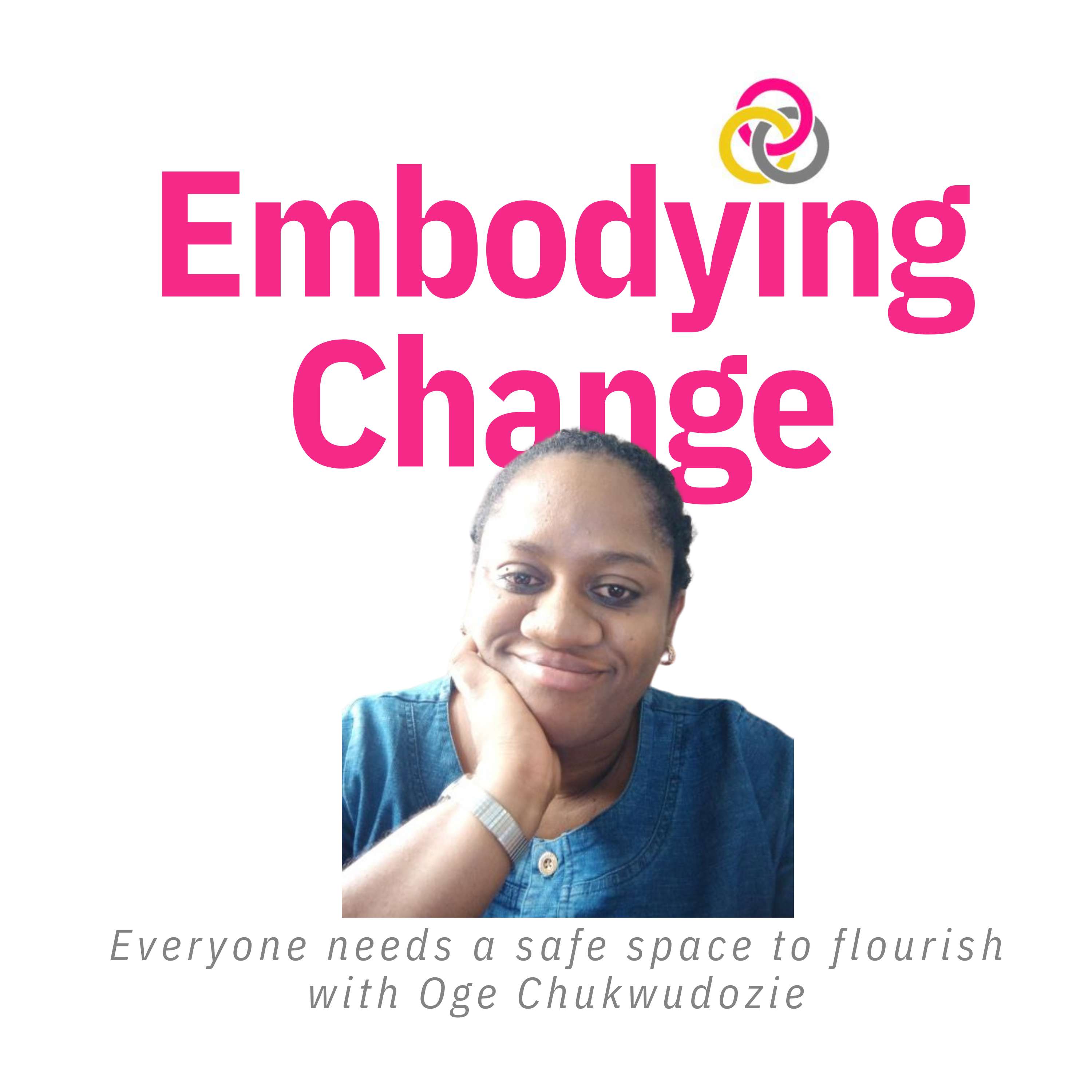
Melissa speaks with Oge Chukwudozie about the Safeguarding Resource and Support Hub’s exciting pilot project accompanying 10 local Nigerian organisations as they work to change their organisational cultures. Oge emphasizes the value of cultivating a safe and supportive workplace culture and the importance of leadership “walking the talk.”
Organisations often issue written policies without addressing the underlying social norms of the organisation that block the full implementation of these policies. A good place to start is for leaders to develop qualities like awareness, self-acceptance, empathy, curiosity in the face of criticism, and a learning mindset in the fa...
26. Culture is the key with Dr. Gaya Gamhewage
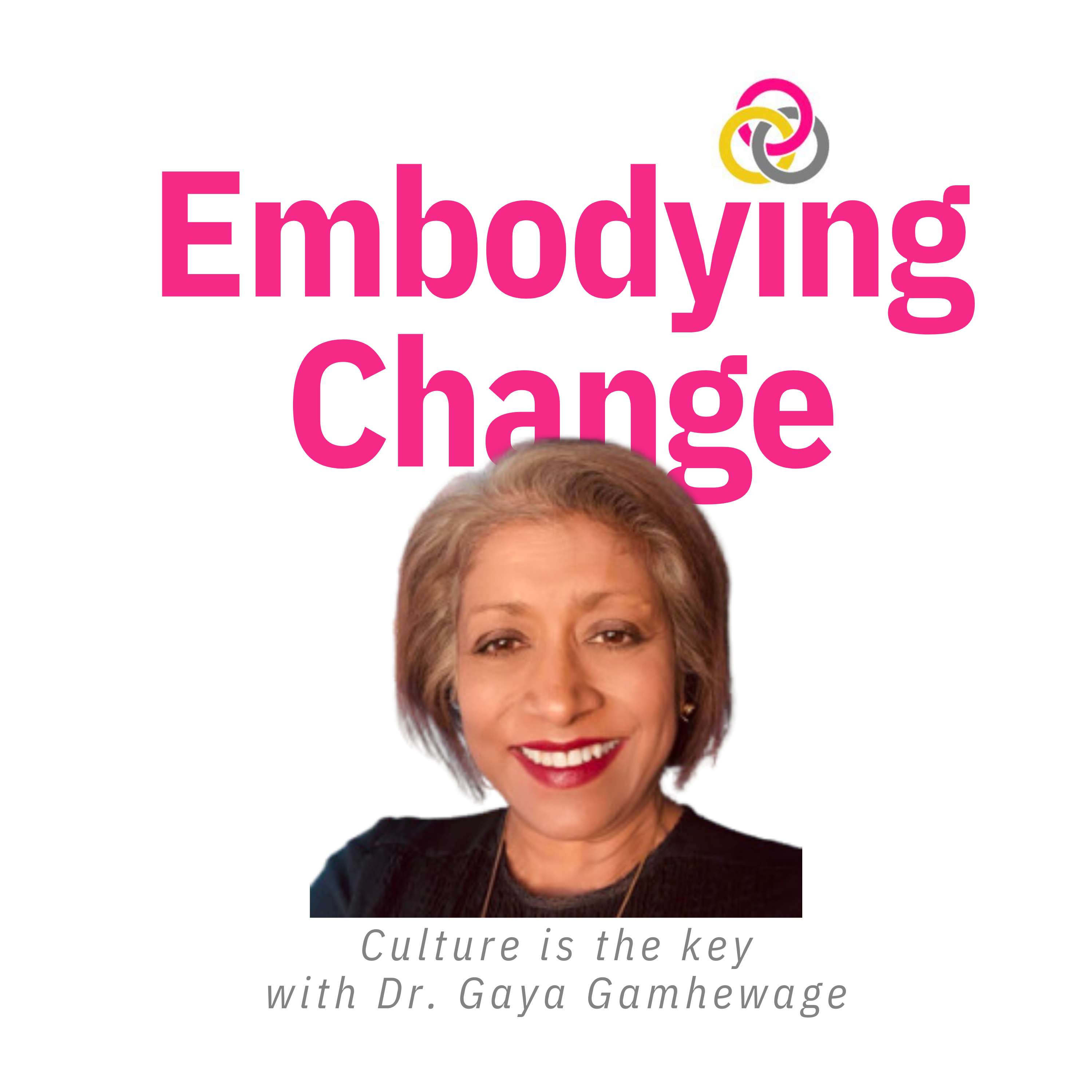
Melissa speaks with Dr. Gaya Gamhewage about her work in the world’s premier health organisation, the World Health Organisation (WHO), to prevent and response to sexual misconduct.
They talk about the importance of leaders being vocal, explicit and sincere about their commitment to living the organisation’s values. They also surface a variety of tangible things organisations can do to reduce the exploitation of power, like:
- admit when there are failures, even though it is uncomfortable
- give immediate, timely and sustained support to victims and survivors, irrespective of the status of...
25. Governing Well with Aseem Prakash and Tosca Bruno-van Vijfeijken
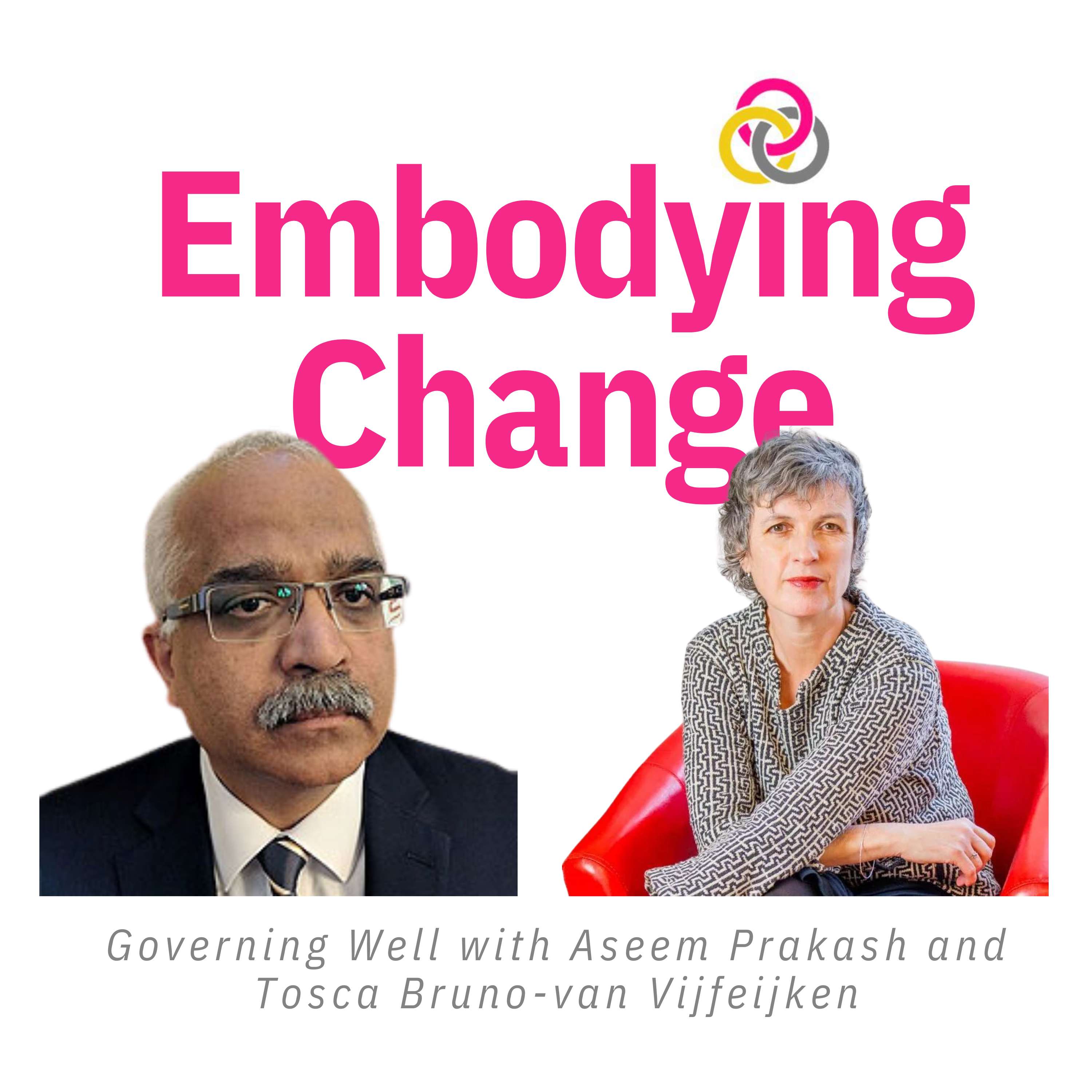
Melissa speaks with Aseem Prakash and Tosca Bruno-van Vijfeijken about how governing boards of aid organisations can “govern well.” They discuss the power dynamics present in any group of humans, embracing difference and true diversity, prioritising lived experience, modelling behaviours, and asking smart questions.
Professor Prakash studies NGOs and nonprofits, and voluntary/private regulation, environmental policy and climate governance. He is a widely published author. He has a B.A. (Hons) in Economics from St. Stephen's College, University of Delhi in 1986 and MBA from the Indian Institute of Management, Ahmedabad in 1988. Since 2002, he has served on the facu...
24. Making power visible with Dr. Emilia Roig
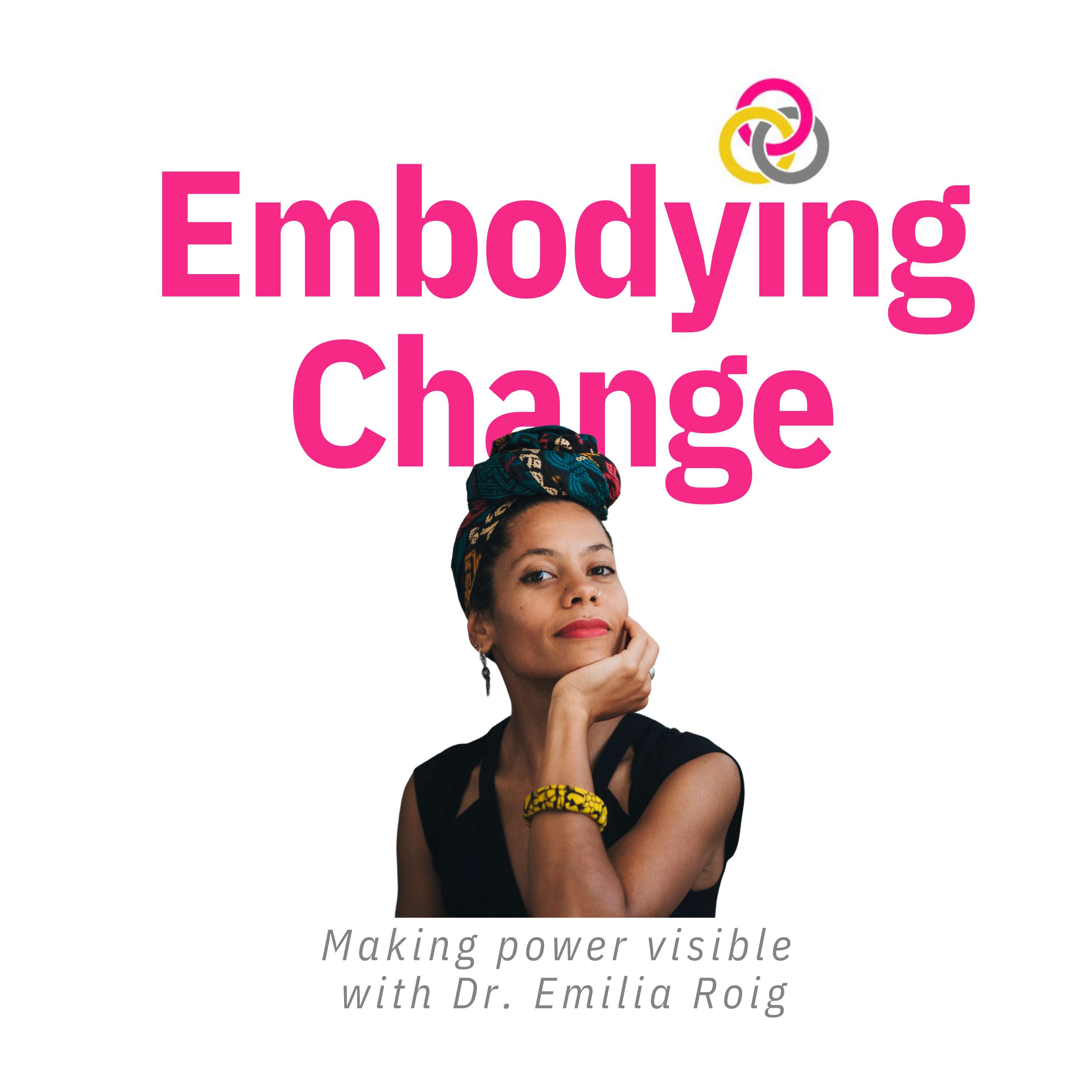
In this conversation, Melissa asks Dr. Emilia Roig, the author of the book "Why We Matter," about how power shows up in our work, her concept of “radical solidarity” and self care.
Accountability has been defined in the latest version of the CHS guidance note as "the process of using power responsibly, taking account of, and being held accountable by, different stakeholders, and primarily those who are affected by the exercise of such power.”
Dr. Emilia Roig, author of “Why We Matter” explains in this Embodying Change episode that “a lot of people don't see power...
23. Evolution or revolution with Umut Dilara Baycili
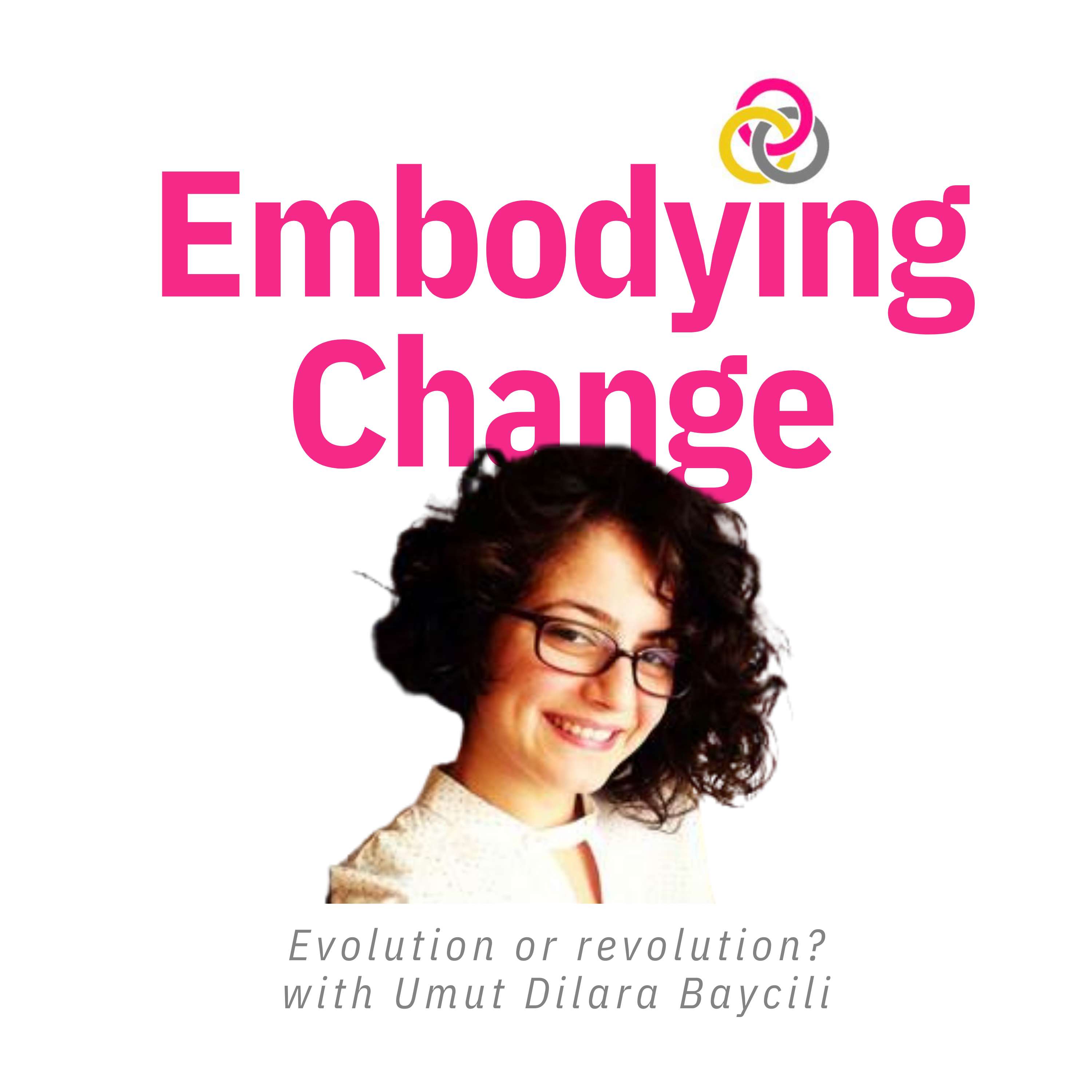
Melissa talks about organisational culture with Umut Dilara Baycili, a child psychologist working for Mavi Kalem. This humanitarian NGO and CHS Alliance member supports women and children in Turkey with a team that includes doctors, psychologists, sociologists and social workers.
It is not unusual for people working for NGOs like Mavi Kalem to experience stressful and traumatic situations. In addition, local and national NGOs often face an uphill battle in accessing sustainable funding. What can be done to support staff and treat them fairly and equitably (Commitment Eight of the Core Humanitarian Standard)?
<...
22. The data tells a story with Dr. Liza Jachens
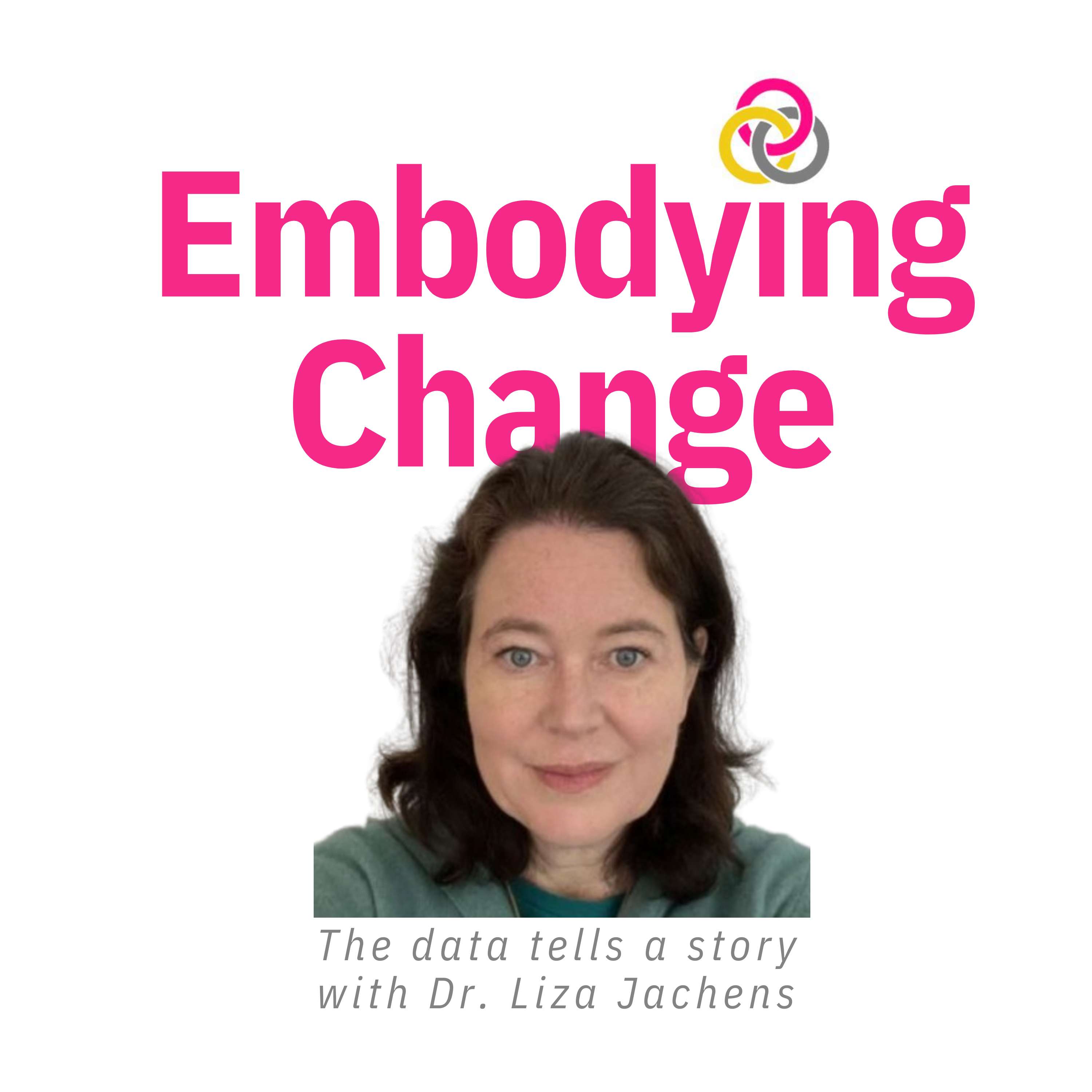
Melissa speaks with Dr. Liza Jachens, an occupational health psychologist, lecturer and research associate who has partnered with six major humanitarian organisations looking at their staff’s experience of work-related stress and its effects on their mental health.
Humanitarian work carries a “high emotional load” often exposed to trauma. Dr. Jachens has found that humanitarians are two to three times more likely to develop a mental illness (like anxiety, depression and PTSD) than the general population. This phenomenon is often more related to organisational stressors than to operational stressors. Experiences vary according to location, gender, professional status, and ro...
21. Root. Rise. Pollinate!
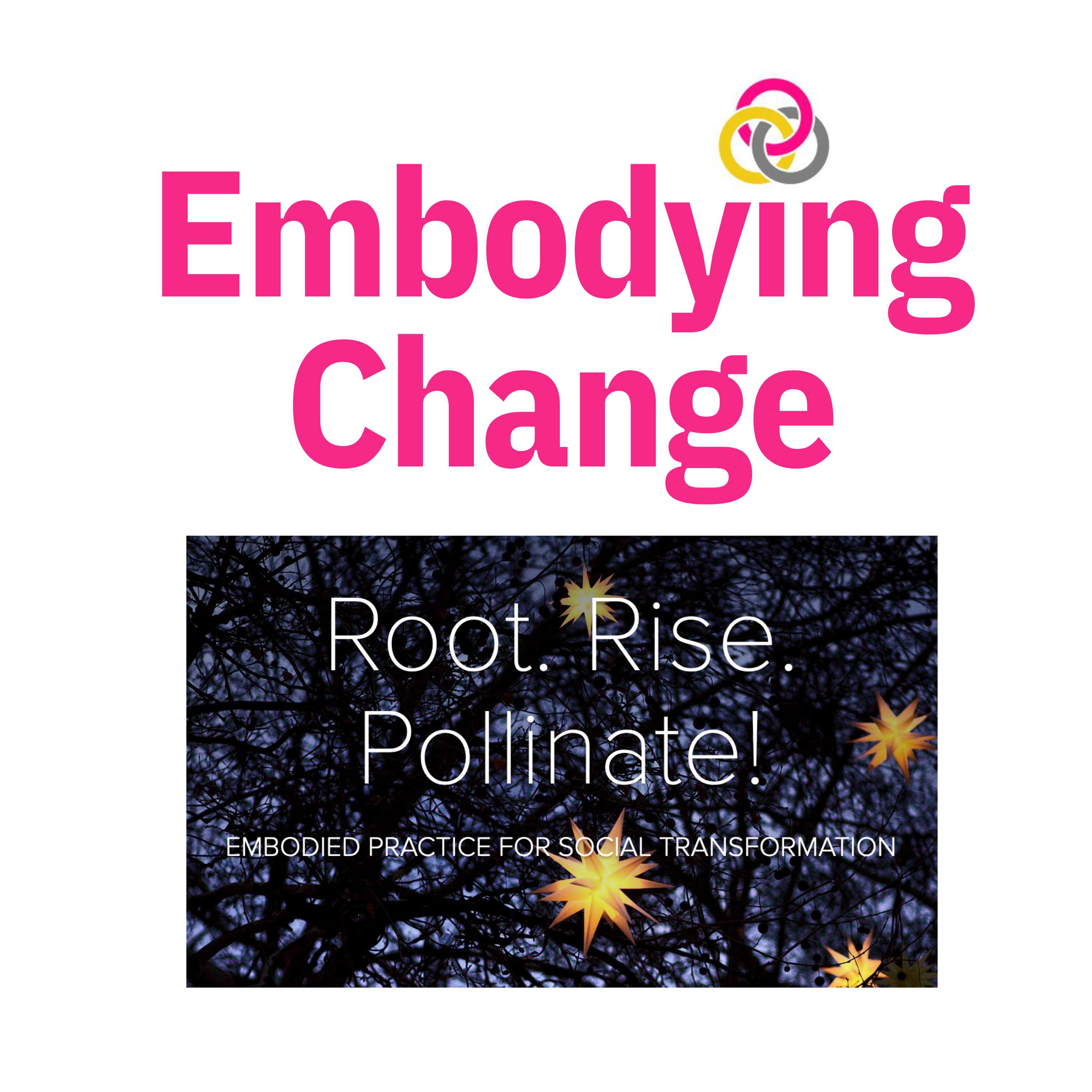
Shawna, Kristen and Rufaro tell the story of Root. Rise. Pollinate! and share learning from their experiment to shift culture through connecting inner and outer transformation.
Shawna Wakefield, Kristen Zimmerman and Rufaro Gwarada tell the story of Root. Rise. Pollinate! - informed by their previous experiences in aid and development. They share learning from their ongoing experiment to shift culture through connecting inner and outer transformation. They discuss practicing new ways of being and doing the work, counter-balancing harmful systems, accountability, responsibility and relationship, decision-making, inter-generational dialogue and much, much more.
Rufaro Gwarada is committed...
